Everyday items you never knew you could recycle
- Home
- Residential
- Blog
- Archive by Category "Knowledge" (
- Page 8 )
[Post Date]
Everyday items you never knew you could recycle
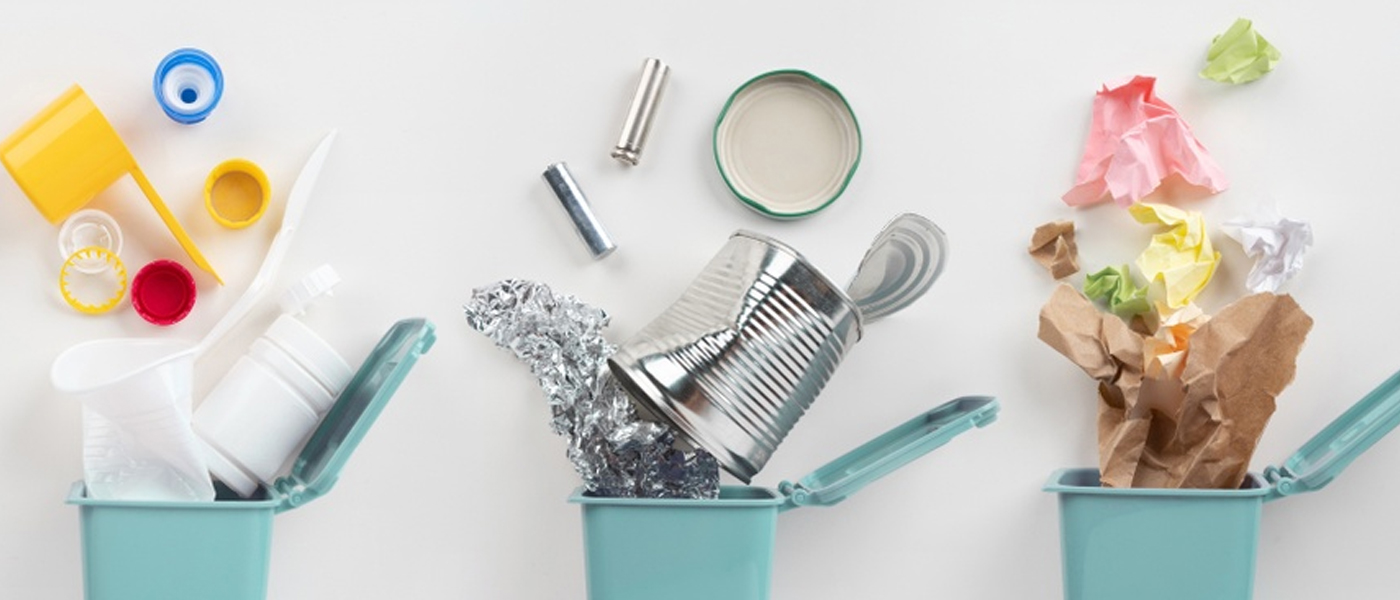
As the habit of recycling at home steadily gained traction in Singapore, you might be familiar with the usual recyclable items around the house such as cardboard boxes, plastic bottles and aluminum cans, and how to go about recycling them. There is certainly more to the list and you might be surprised by some unexpected ones. Here are some additional items at home you never knew you could recycle as well.
Light bulbs and lamps
Light bulbs are considered a form of e-waste and can be recycled. Due to the nature of the product, they cannot be deposited into the common recycling bins located within the residential areas. With most lamps and light bulbs being mostly made up of glass, metal and limited amounts of mercury, improper disposal could lead to contamination.

What to do: Check in with your neighbourhood community centres if they have a collection point for faulty light bulbs and lamps to be recycled by professionals.
Aerosol cans
Face mist, paint sprays, insecticides and hair sprays – these everyday household items can come in the form of aerosol cans. Aerosol containers or spray cans are pressurised products that can start a fire or cause injuries when you dispose them in the trash where they can be punctured and explode.
What to do: Empty the aerosol cans before recycling them in our common neighbourhood recycling bins. An empty spray can is safe for disposal if you no longer hear air being released from the container when the nozzle is pressed.
Portable chargers and electrical cables
With our phones constantly by our side all the time, you can imagine how important it is for it to have sufficient battery life. As such, portable chargers and electrical cables have become almost indispensable in our everyday lives.
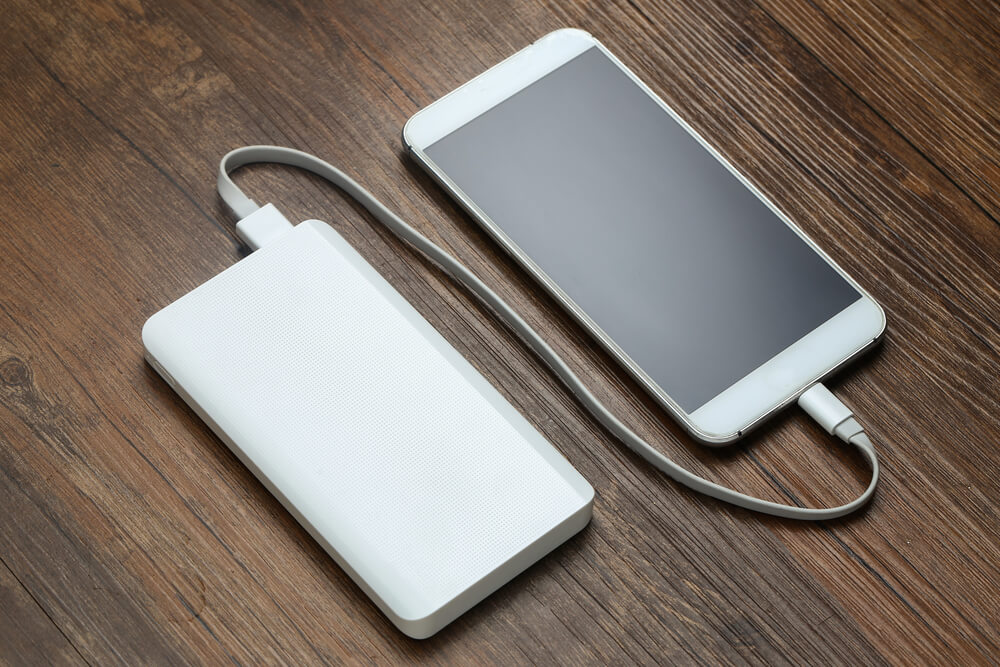
With daily use, wear and tear is expected much like any other household items. Consider if it is possible to have it repaired with your local repairman or to do an exchange with the manufacturer.
What to do: Should throwing out be the only available option, don’t be too quick to bin it as these items can be recycled as e-waste. Check out these locations where cables and portable chargers can be recycled!
Spectacles
According to the World Health Organisation, at least 2.2 billion people have a vision impairment or blindness, of whom at least 1 billion have a vision impairment that could have been prevented[1]. By recycling your unused glasses, it is a great way to put your old glasses to good use while making a difference in enabling the vision of those in need.

What to do: Do a quick check for local optical shops which collect or trade in old spectacles. One such optical shop is Visio Optical, who runs an eyewear collection programme where everyone is encouraged to donate their old or new spectacles and sunglasses that are in usable conditions. The glasses will then be reworked and offered to people with financial difficulty unable to access or afford quality eye care, providing them with proper prescription glasses.
Being able to recycle these unexpected household items, it broadens the perspective of how we view recyclable items to not just be confined to the usual suspects. The next time before you bin something, do a quick check with this list if it can be recycled.
As sustainability becomes more of a necessity with the increasing urgency of climate change, it’s time we practice more mindful habits to leave the world in better hands for the generations after us.
References:
- [1] (2019) World Report on Vision. World Health Organisation.
https://www.who.int/docs/default-source/documents/publications/world-report-on-vision-accessible-executive-summary.pdf?sfvrsn=d159ec9f_2
Image Credits: Nylon Coffee Roasters
Source: The Sustainability Project
Understanding Food Waste in Singapore: What Can We Do to Help?
- Home
- Residential
- Blog
- Archive by Category "Knowledge" (
- Page 8 )
[Post Date]
Understanding Food Waste in Singapore: What Can We Do to Help?
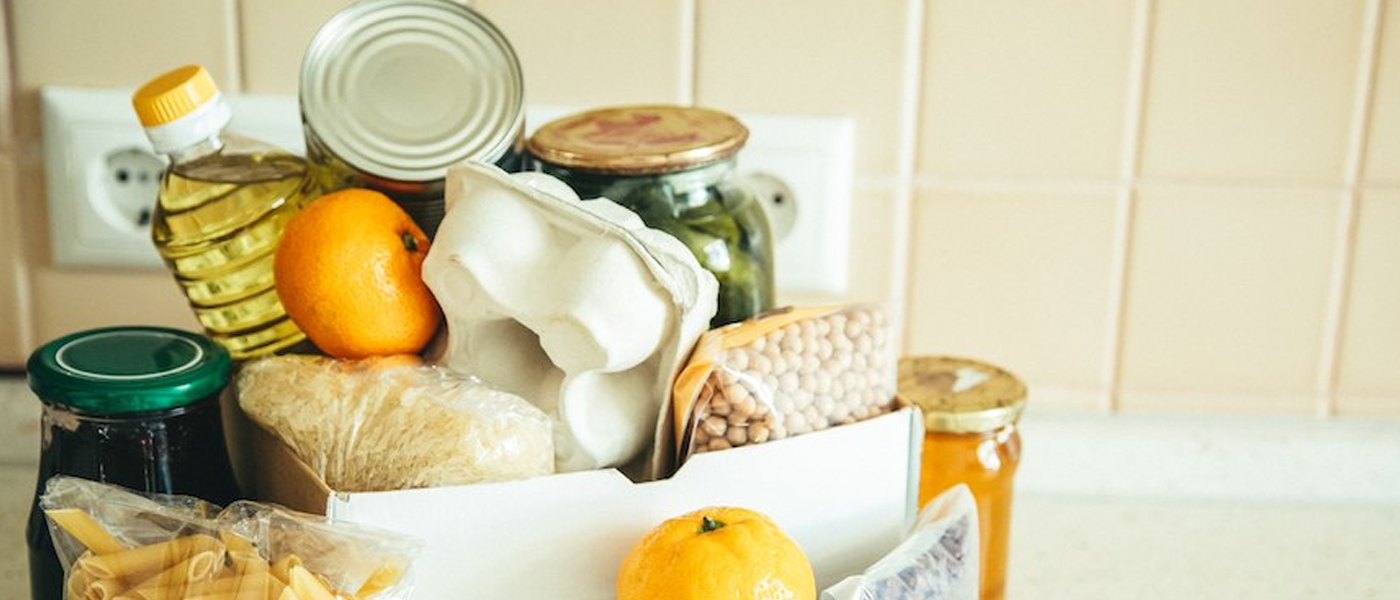
We all have memories of our parents telling us not to waste food when we were younger. However, the issue of food waste in Singapore expands far beyond simply finishing food left on your plate. According to statistics provided by the National Environment Agency (NEA), Singaporeans disposed 744 million kilograms of food in 2019. Putting this into context, that’s about 2 bowls of rice per person wasted every day, or 51,000 double decker buses of wasted food generated every year[1]!
Our nation’s trend on food waste is on a worrying rise, with the amount increasing by about 20% over the past 10 years[2]. This figure is also expected to increase, alongside our nation’s growing population and economic activity.
To find out how we can address this unhealthy trend, an understanding of Singapore’s most typical avenues of food waste must first be reached.
How is food in Singapore wasted?
With our nation’s love and passion for food, it is no surprise that Singapore’s food waste emerges from all avenues along its supply chain. From food distributors, to supermarkets, restaurants, and finally within our own households – most of us are part of this vicious cycle.
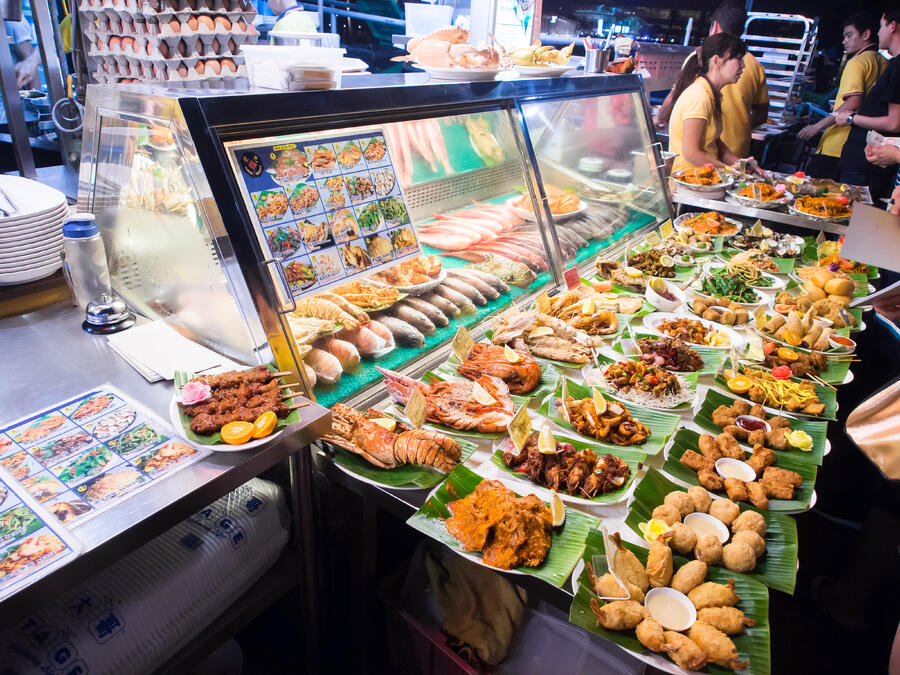
For instance, cosmetic filtering is a common phenomenon that happens with most food retailers. This practice is exactly what it sounds like, where foodstuffs are filtered and selected based on how edible or appealing, they look. Items that fail to meet the aesthetic standards of the chefs or retailers are discarded without reaching the shelves. A study revealed that stall owners at a wet market dispose of up to 30,000 kilograms of unwanted vegetables and fruits every day based on this very reason[3].
Another top avenue for food waste boils down to the improper inventory management of food stock by restaurants and chefs. This occurs most commonly when restaurants overorder more food than what is required, to avoid running out of food during service.
Finally, food waste is something that happens in our households as well. According to a study conducted by the NEA and the Agri-Food and Veterinary Authority of Singapore (AVA), the top three reasons people at home threw food away was because “it had expired, gone mouldy, or that it looked, smelled or tasted bad”[4], which caused many Singaporeans to throw away food that may still be safe for consumption.
Why is Food Waste a Problem?
As more food is wasted each year, an increased amount will also have to be sourced to meet the growing and misrepresented demand for food within our nation. This directly places a greater amount of stress on Singapore’s food security goals, where local food producers such as our ChangeMakersSG Comcrop, are striving to meet 30% of the country’s nutritional needs by the year 2030.
Aside from having to meet a growing demand for food, Singapore is also being forced to step up its waste disposal systems to efficiently dispose and incinerate the large volumes of food wasted every day. The incinerated food is then added on to our landfills, which when buried and broken down, emits methane – a greenhouse gas known to contribute towards global warming[4].
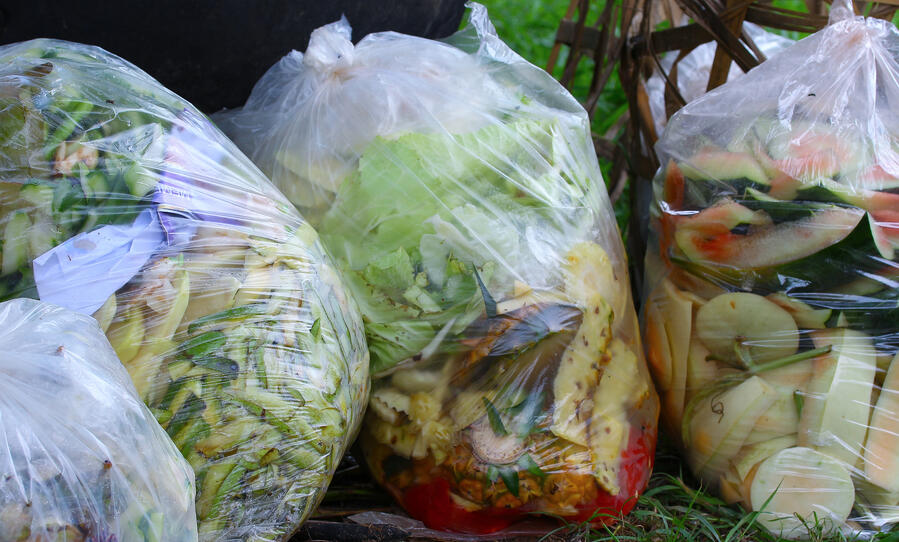
Lastly, each step of the food supply chain involves a huge amount of resources and processes, such as food production, storage, and transportation, with each activity leaving its own carbon footprint on the planet. By consuming and wasting more food than we need, we are therefore heightening our planet’s crisis of climate change.
What Can I Do?
To better minimise food waste at home, you can begin by simply being careful to only purchase what your household needs. In doing so, you avoid having to throw away spoiled food, or grapple with whether a certain food item can still be eaten or not. On top of that, try exploring the option of using your leftovers to transform them into new dishes for the next meal, instead of being so quick to throw your excess dinner away.
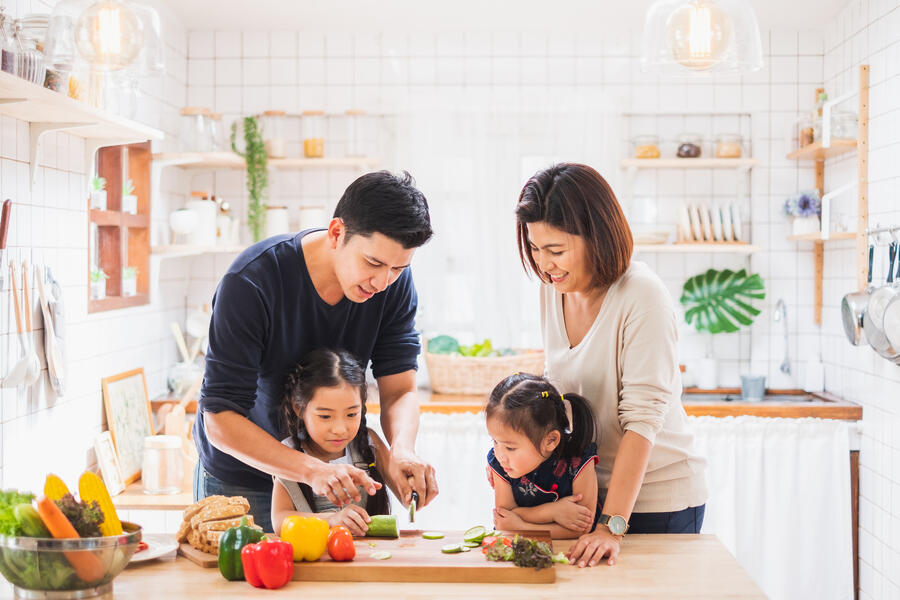
Finally, in the event where you have excess food that you know you won’t be able to finish, you can donate them to the various charities and non-profit organisations that will put your food to better use. One of Geneco’s ChangeMakers The Food Bank Singapore, specialises in redistributing food that has been rejected by food retailers and manufacturers due to cosmetic reasons, giving them instead to the less privileged communities in Singapore who grapple with food insecurity every day.
While Singapore’s food waste issue is not one to be taken lightly, there are plenty of efforts, initiatives, and resources around for us to educate ourselves about regarding this issue. However, more than just looking at the solutions we have, the key to a long-term solution lies in adopting a different, better mindset on how food can be consumed, and conserved.
Everyone has a part to play, and with food being an integral part of each of our lives, the change can always be started within ourselves.
References:
- [1] Towards Zero Waste, Food Waste
https://www.towardszerowaste.gov.sg/foodwaste/ - [2] NEA, Food Waste Management
https://www.nea.gov.sg/our-services/waste-management/3r-programmes-and-resources/food-waste-management#:~:text=Food%20waste%20accounts%20for%20about,(WTE)%20plants%20for%20incineration. - [3] Tan, J (2017, January 20) Singapore: throw-away nation
https://www.straitstimes.com/singapore/singapore-throw-away-nation - [4]Elangovan, N (2019, September 10) Trash Talk: The battle of the food waste bulge — why you should throw away less food
https://www.todayonline.com/features/trash-talk-battle-food-waste-bulge-why-you-should-throw-away-less-food
Image Credits: Nylon Coffee Roasters
Source: The Sustainability Project
A beginner’s guide to plant-based eating!
- Home
- Residential
- Blog
- Archive by Category "Knowledge" (
- Page 8 )
[Post Date]
A beginner’s guide to plant-based eating!
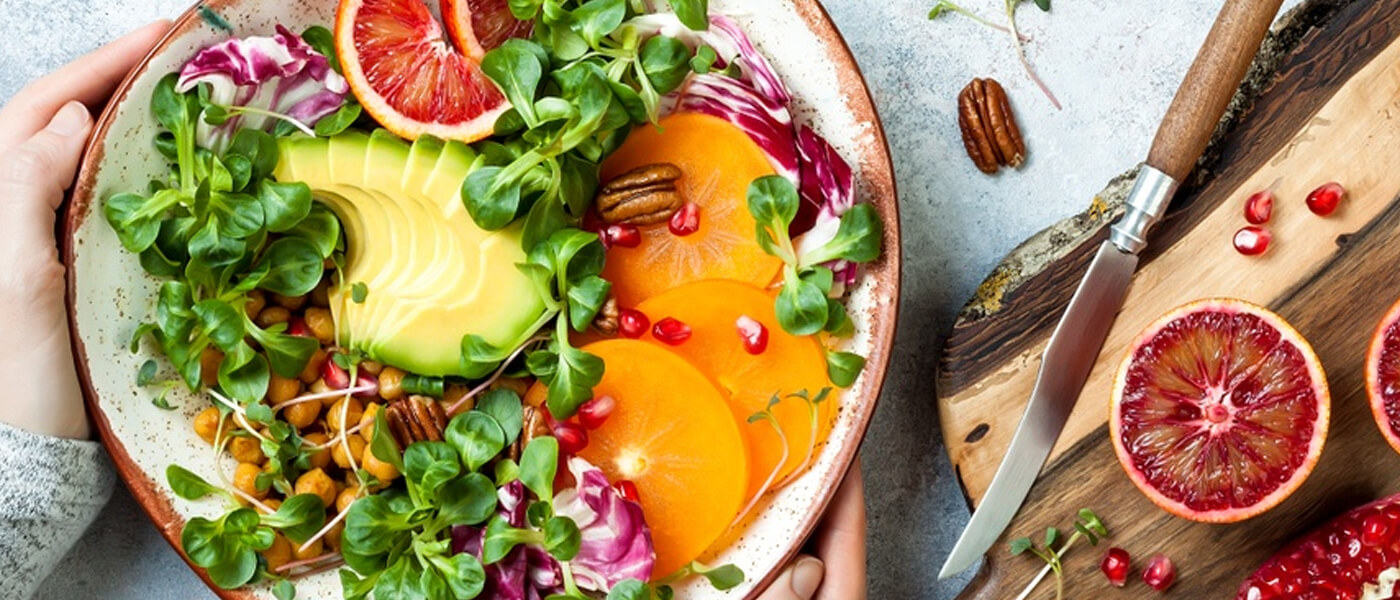
Sustainability is no longer just a trend, but a lifestyle choice for many people. As more consumers choose to switch from single-use plastics to reusable options, or opting for eco-friendly products as part of their daily routine, there are many other ways for individuals to lead a more sustainable lifestyle. A method few may have considered is switching to plant-based eating.
Does plant-based eating means that you have to abstain from meat? We clear the air and answer some of these questions as part of our beginner’s guide to plant-based eating. You will be surprised that it may be easier than you think!
What is a plant-based diet?
A plant-based diet essentially emphasises on food such as vegetables, fruits, whole grains and legumes, while at the same time, limiting your intake of meats, dairy and eggs. It really depends on how strict an individual wants to be in terms of the diet and what will be the best fit depending on health needs and daily lifestyle.
Some may opt to completely axe animal food products if they prefer, while others might just reduce their intake depending on their own interpretation of a plant-based diet. The beauty of it is that meat and seafood do not necessarily need to be off-limits, instead you can make conscious efforts to cut down on how often you consume those items.

There are a range of diet options that fall under plant-based diets. Some of these examples include:
Pescatarian diet
A pescatarian diet involves eating fish and seafood as a main source of protein, together with vegetable and plant-based foods.[1]
Mediterranean diet
A Mediterranean diet focuses on fruits, vegetables, and whole grains, and it includes consuming less dairy and meat.[2]
Vegetarian diet
A vegetarian diet is a meat-free diet. Depending on the individual, some will include eggs and dairy within their diet requirements.[3]
Vegetarian diet
A vegan diet excludes all animal-based foods.[4]
Benefits of a plant-based diet
There are several benefits when choosing to incorporate a plant-based diet into your daily life. One of the most apparent change will be how it impacts your health. According to Harvard University’s health blog, it states that plant-based diets such as the Mediterranean diet, shows lower risk of chronic diseases, certain cancers, depression and frailty in older age. [5] Beyond preventing diseases, plant-based diets are also effective for treating obesity and boosting energy levels. [6]

Plant-based diets are also better for the environment. Unknown to most people, what we choose to eat makes up a huge proportion of our impact on the environment. Cattle grazing contributes to climate change by producing a lot of gas such as methane and CO2. The United Nations Food and Agriculture Organisation (FAO) estimates that livestock production is responsible for 14.5 per cent of global greenhouse gas emissions. [7] The Worldwatch Institute have even mentioned that this figure could be as much as 51 per cent.[8]
With a significant amount of global emissions coming from animal products, our small choices in diet plays a huge role in helping combat climate change.
Taking the first step towards a sustainable diet
If you are convinced on wanting to move towards a plant-based diet, you might not know where or how to start, especially with so much information available out there.

Here are some additional tips and tricks to ensure a smooth transition to a plant-based diet!
1. Start with a small change:
Instead of jumping straight in and completely eliminating meat from your diet, choose to start with 1 day a week to lower your animal food intake. Meatless Monday is a global movement which encourages people to not eat meat on Mondays in a bid to protect the environment and improve one’s health. Once you are well adjusted with this, slowly increase this habit to 2-3 times a week.
2. Explore your food options:
In Singapore, there are plenty of food options out there that can come in place of meat. From mock meat to mushrooms and even legumes, choosing a plant-based diet can exercise some creativity on how you can keep those meat cravings at bay and gain the required protein from other alternatives.
3. Plan your meals and cook at home
By planning your meals for the week and making them on your own, it is certainly helpful in sustaining plant-based eating for the long haul. This is a great habit to keep where not only does it help you to stick to this commitment, but also ensures your food waste is reduced. In addition, it also gives you a chance to experiment in the kitchen and attempt new plant-based recipes you may have never tried!
Plant-based recipes to get you started
To help you kick-start on this journey, one of Geneco’s ChangeMakers Cultivate Central, have put together plant-based recipes that you can try at home using microgreens you may have grown in your own home garden.
- Quinoa, daikon, radish microgreens and tapioca salad
- Tanghoon soup with buckwheat microgreens
- Raita with sunflower microgreens
A plant-based diet really is not as daunting as it seems and can be attempted by anyone. The key is to start small and to find a flexible diet that you are comfortable with as you choose to reduce your animal product intake. While everyone has their own reasons for adopting it, the benefits it brings to our environment and fighting climate change is undeniable. Many alternatives that can help to build a compromise to enable everybody to take action for the environment, exist through their dietary choices.
References:
- [1] Crichton-Stuart , C (2018, December 6) What is a pescatarian diet?
https://www.medicalnewstoday.com/articles/323907 - [2] Johnson, J (2019, January 18) Our guide to the Mediterranean diet
https://www.medicalnewstoday.com/articles/324221 - [3] Brazier, Y (2020, January 20) What to know about the vegetarian diet
https://www.medicalnewstoday.com/articles/8749#foods - [4]Brazier, Y (2020, January 20) What to know about the vegetarian diet
https://www.medicalnewstoday.com/articles/8749#foods - [5] MacManus, K.D. (2018, September 2016) What is a plant-based diet and why should you try it
https://www.health.harvard.edu/blog/what-is-a-plant-based-diet-and-why-should-you-try-it-2018092614760 - [6] Sissions, B (2019, August 29) Everything you need to know about plant based diets
https://www.medicalnewstoday.com/articles/326176#benefits - [7] Key facts and findings
http://www.fao.org/news/story/en/item/197623/icode/ - [8] Surprising Sources of Air Pollution: 6 Ways Animal Farms Contribute to Poor Air Quality
https://gasp-pgh.org/2020/05/13/surprising-sources-of-air-pollution-6-ways-animal-farms-contribute-to-poor-air-quality/
Image Credits: Nylon Coffee Roasters
Source: The Sustainability Project
Kid-Friendly Activities to Teach your children about Sustainability
- Home
- Residential
- Blog
- Archive by Category "Knowledge" (
- Page 8 )
[Post Date]
Kid-Friendly Activities to Teach your children about Sustainability
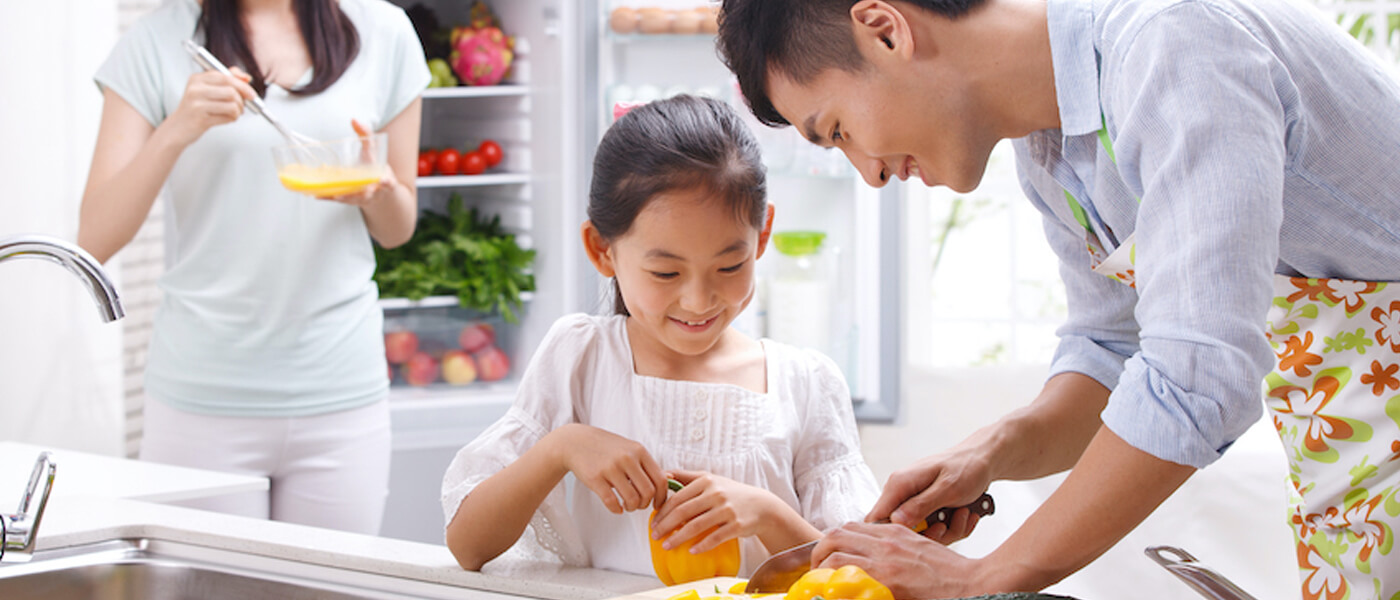
The journey towards becoming environmentally conscious often starts at home, and what better way to get your family to understand the importance of sustainability than inculcating green habits from young? How can we help our kids understand the impact we have on the planet, as well as the responsibility we have to conserve the environment for our future generations?
Fortunately, being sustainable includes lots of activities such as recycling and gardening, for our kids to try their hands on. With the activities suggested below, you’ll be able to guide your children and even yourselves towards a better understanding of how and why it is important to love and protect our planet.
Plant It, Grow It, Eat It!
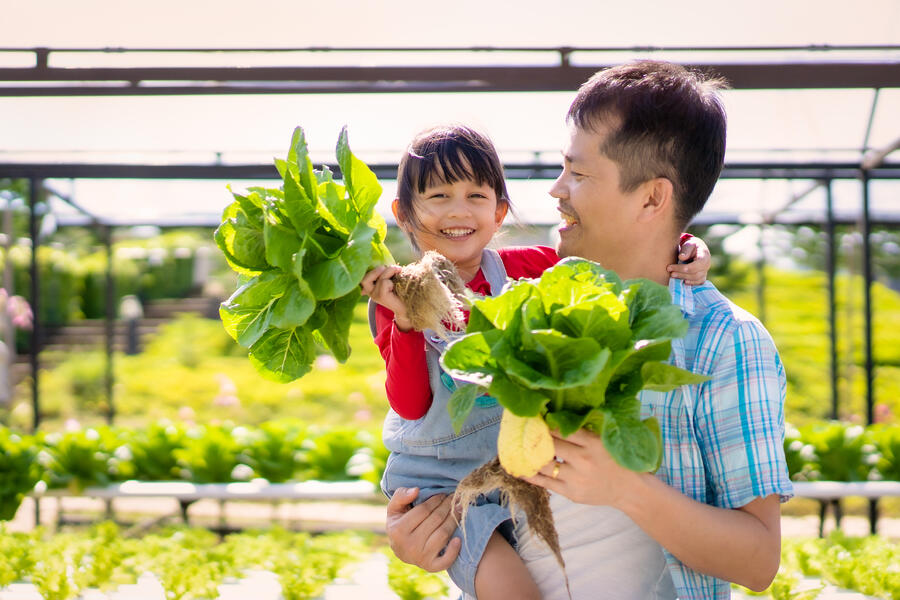
Let your kids have a sense of ownership and accomplishment through a hydroponic garden! Not only does growing your own vegetables at home promote healthier eating within the household, a home garden will also serve as an excellent classroom for your children to learn about the effort required to grow their own food, hence teaching the important lesson of food conservation!
Additionally, hydroponic gardens require less water and space and hence are also better suited for growing in a smaller room. By removing the hassle of soil that comes with traditional gardens, this wholesome project serves as a great, convenient activity you can conduct with your kids for the many weeks to come.
Upcycling Clothes at Home
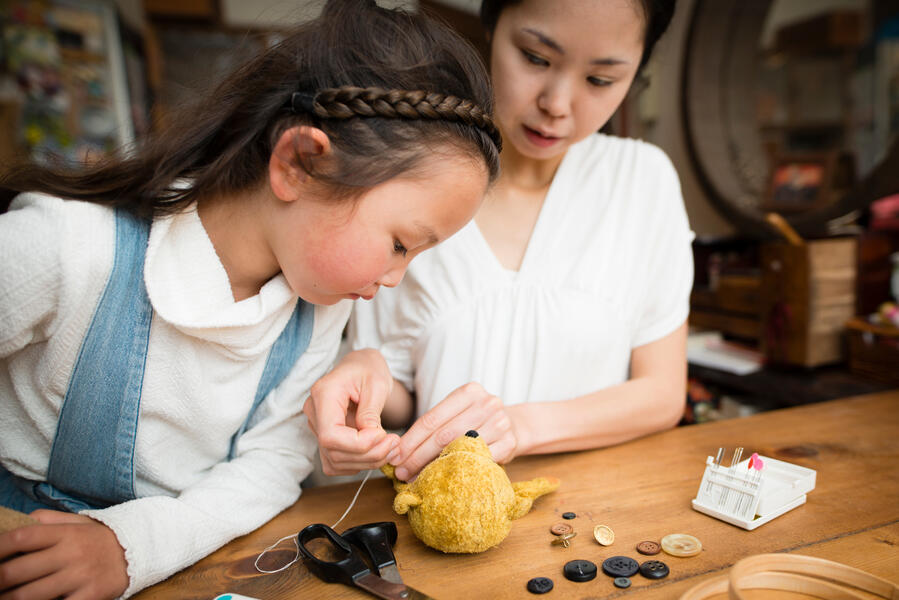
If you don’t feel like you have the green fingers, there is still a plethora of other fun DIY activities for you and the family to do together!
Heard all about upcycling discarded old clothes and other common types of waste at home? Instead of throwing them away at the nearest recycling bin, why not give them a second lease of life by upcycling them?
One simple activity you could try out is to make use of old pieces of clothing that you or your children may have outgrown from over the years. Take the opportunity to repurpose them into handy household objects, such as floor mats, wiping rugs, and or even cushion covers. By doing so, you get to be cost-efficient by making the use of your existing items at home, whilst reducing the amount of waste produced by your family.
For some ideas on how to get started on this project, take a look at our Instagram post here for some inspiration on how you can upcycle other textiles at home. Just remember to handle the scissors and needles with care around the kids!
Making Your Own Household Products

Taking it a notch higher, look beyond repurposing textile goods and consider making your own household products from scratch together as a family. Yes, we mean products such as soap, laundry detergent, and even facial beauty products for your very own organic spa!
Concocting these organic products up from scratch may seem like a daunting task at first but the benefits that come with creating it far outweighs the minor challenges. Firstly, you get to control exactly what ingredients go into each of these products, which means you can easily avoid substances or chemicals that you or your children may be sensitive to. Aside from just using healthier products, you also stand to be much more environmentally friendly and cost-efficient by making your own household products at home!
If this activity sounds like the perfect thing to do over weekend doing with your kids, we’ve also got a mini tutorial on our Instagram page to show you how you can create various beauty products with just a couple of natural fruits and ingredients. Visit the link here to find out more.
Creating a Compost Heap at Home
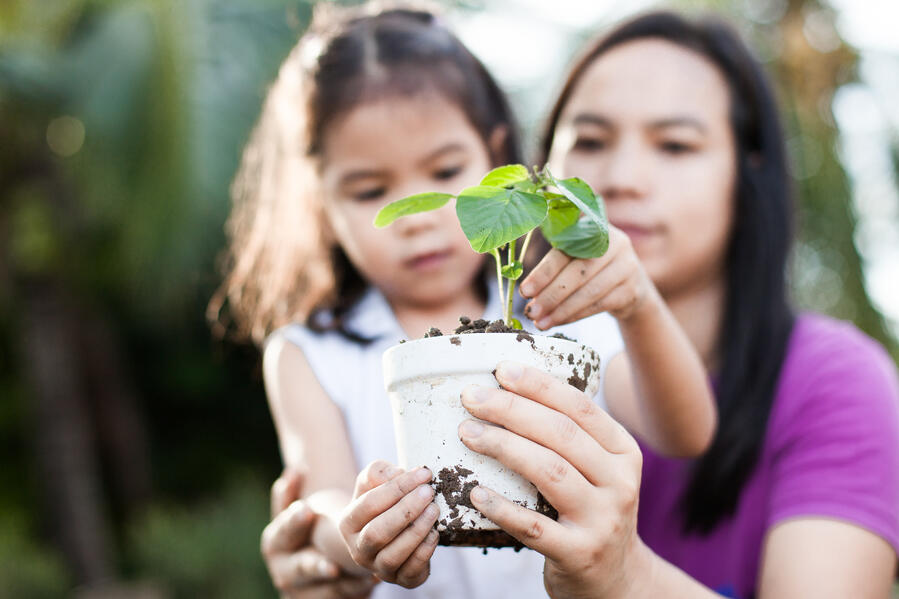
Want to be even more hands-on and get them dirty? Then why not try building your own compost heap at home? Not only is this an environmentally friendly way to get rid of excess food at home without wasting it, your kids are sure to have a great deal of fun watching and learning about the composting process right from the comfort of their own homes.
All you need to get started with are simple materials such as plastic bin, some soil and paper waste, water and you’re all set!
Simply drop a visit to our #ChangeMakersSG Cultivate Central’s blog for more detailed instructions telling you not just how, but why we should get started on composting activities with our children at home today.
Science Lessons for Kids
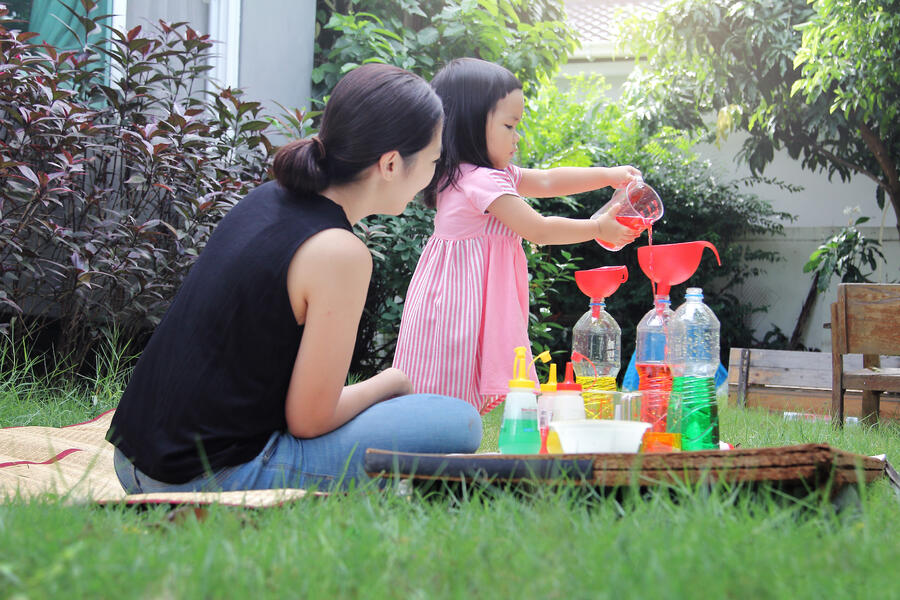
For those with kids who love science, there are also plenty of activities about sustainability for your family to try out to satiate the academic in your child.
One really easy science experiment for younger children is an air pollution experiment. Simply spread some petroleum jelly or Vaseline on a clear plastic surface and expose it to the outside air for 24 hours. At the end of the experiment, you can take the plastic surface down with your child to take a look at the amount of dust particles accumulated on the surface.
Besides making use of this opportunity to hone your child’s scientific and analytical skills, engaging in these science experiments as a family also serve as the perfect conversational starters to talk to your children about various topics concerning environmental conservation.
Activities for Today, Lessons for Tomorrow

With the abundance of resources we have at our disposal, it is vital to not just initiate conversations at home, but also making use of them to educate our children about the various issues concerning our environment.
As we progress as a society, so does the importance of environmental conservation and the onus is not only on us to protect and conserve the environment, but to also inspire and equip the future generations to love and care for a greener and brighter tomorrow.
References:
- [1] Crichton-Stuart , C (2018, December 6) What is a pescatarian diet?
https://www.medicalnewstoday.com/articles/323907 - [2] Johnson, J (2019, January 18) Our guide to the Mediterranean diet
https://www.medicalnewstoday.com/articles/324221 - [3] Brazier, Y (2020, January 20) What to know about the vegetarian diet
https://www.medicalnewstoday.com/articles/8749#foods - [4]Brazier, Y (2020, January 20) What to know about the vegetarian diet
https://www.medicalnewstoday.com/articles/8749#foods - [5] MacManus, K.D. (2018, September 2016) What is a plant-based diet and why should you try it
https://www.health.harvard.edu/blog/what-is-a-plant-based-diet-and-why-should-you-try-it-2018092614760 - [6] Sissions, B (2019, August 29) Everything you need to know about plant based diets
https://www.medicalnewstoday.com/articles/326176#benefits - [7] Key facts and findings
http://www.fao.org/news/story/en/item/197623/icode/ - [8] Surprising Sources of Air Pollution: 6 Ways Animal Farms Contribute to Poor Air Quality
https://gasp-pgh.org/2020/05/13/surprising-sources-of-air-pollution-6-ways-animal-farms-contribute-to-poor-air-quality/
Image Credits: Nylon Coffee Roasters
Source: The Sustainability Project
A day in a life without Plastic
- Home
- Residential
- Blog
- Archive by Category "Knowledge" (
- Page 8 )
[Post Date]
A day in a life without Plastic
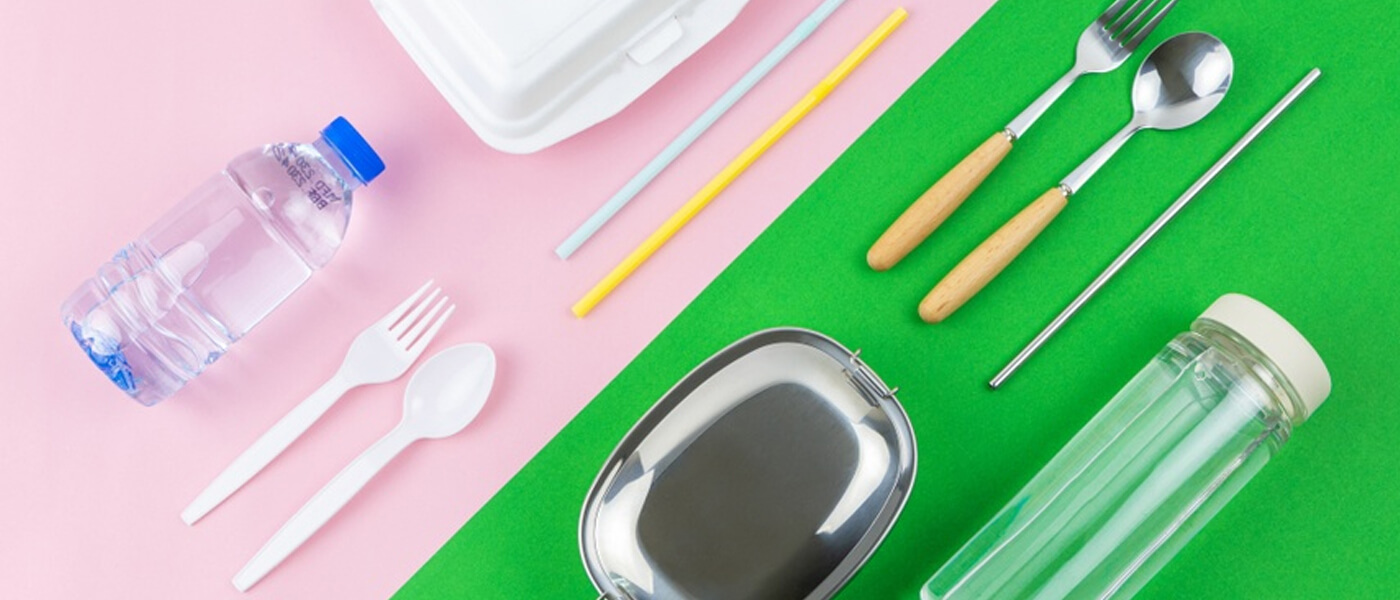
Is it really possible for one to go a day without plastic? While many might think that it may be a challenge, you might be pleasantly surprised that a plastic-free day is very much doable!
As we approach the end of #PlasticFreeJuly, here’s a preview of what a plastic-free day could possibly look like. It’s not too late to start with small simple changes in our everyday routines, and having these changes add up to help us achieve our goal to go plastic-free in the long run!
7am: Ditch that plastic toothbrush and cotton round!
Let’s start the day right with fresh faces and cleaned teeth! Consider eliminating the use of plastic toothbrushes and switch it out for a bamboo one for your morning routine instead. They provide the same quality of cleaning as a plastic toothbrush.
Furthermore, one can easily compost the handles of bamboo toothbrushes, upon removing the nylon bristles, as bamboo decomposes naturally in the environment.[1] Not only will you still be able to keep your teeth fresh and clean, a smaller ecological footprint is left on our planets as well.
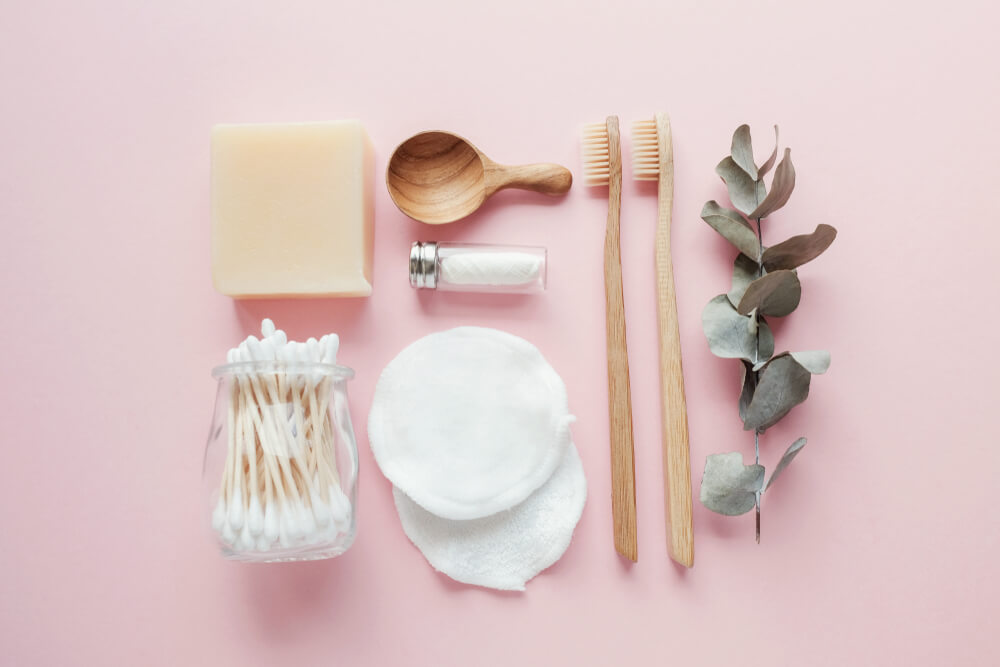
Another easy swap you can do include as part of your morning routine is using reusable cotton pads instead of disposable ones. These reusable alternatives work just the same as the disposable version and offer lots of neat advantages as they are durable, absorbent, and easy to clean. Most importantly, it helps reduce waste as a single cotton pad can be used up to 1000 times, compared to cotton pads which are tossed away after one-time usage.[2]
10am: A plastic-free caffeine fix!
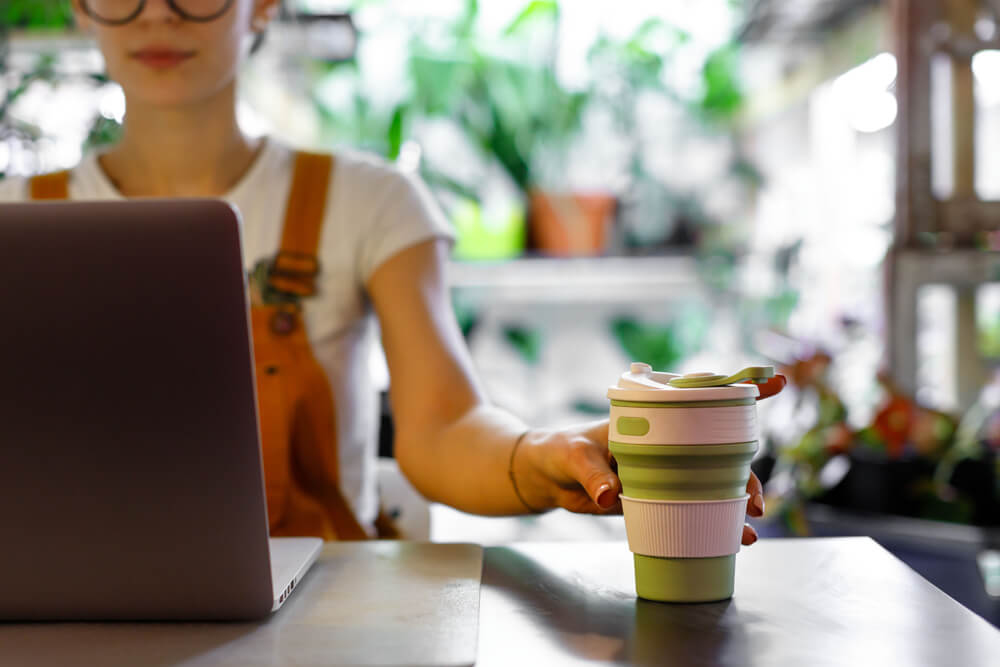
As we jump-start our day, the aroma of a cup of freshly brewed coffee will certainly perk many of us up. Bring along a reusable coffee mug or eco-friendly cup when you get your daily fix from the pantry or the coffee house. If you prefer, you could even bring your own brew from home to the office instead. With every cup of coffee you opt to use your own mug, imagine the number of disposable cups you save from being part of our landfills. Bonus: Many coffee shop locations give you a discount for bringing your own flask.
1pm: Time for a zero-waste lunch
With the lunch crowd often in full force in restaurants and food courts, you might find yourself opting for takeaways at times with your meals coming in styrofoam boxes or disposable containers.
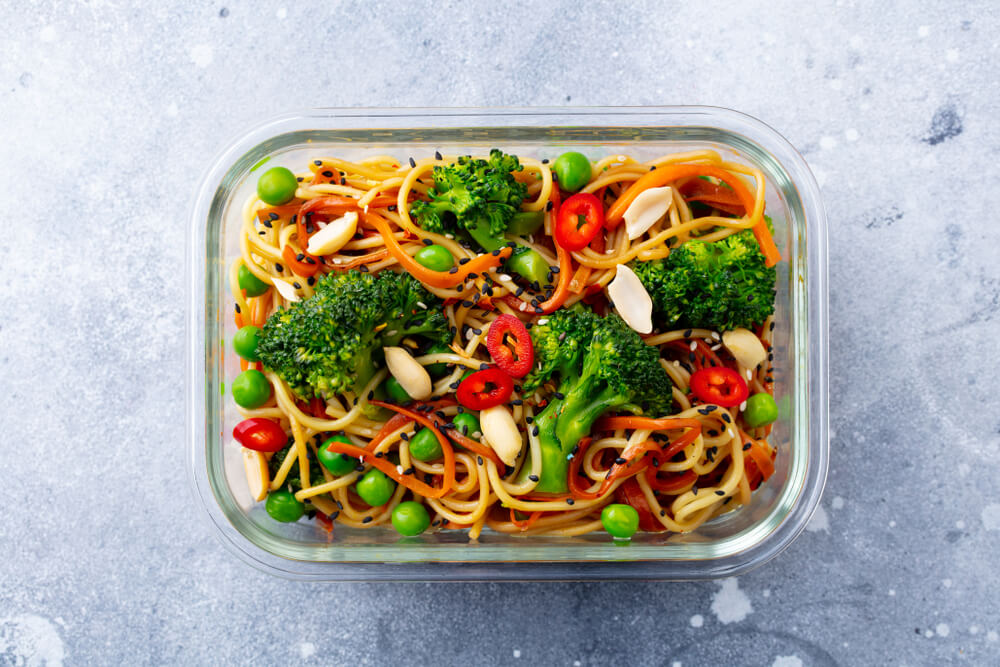
For your next lunch takeaway, bring along a food container to have that meal to go! You can easily keep a spare food container in your office together with a pair of reusable utensils to complete the plastic-free lunch set.
You can even go a notch higher and ignite change by working with your organisation to make such containers available in the office for daily meal takeaways!
4pm: Mid-day treat
With just a couple of hours more till the end of your workday, you might be looking for that sugar rush to help you power through the remaining hours. Bubble tea is one of Singaporeans’ favourite go-to beverage choice and there are ways you can go plastic-free, even when you are getting that much-needed sugar rush!
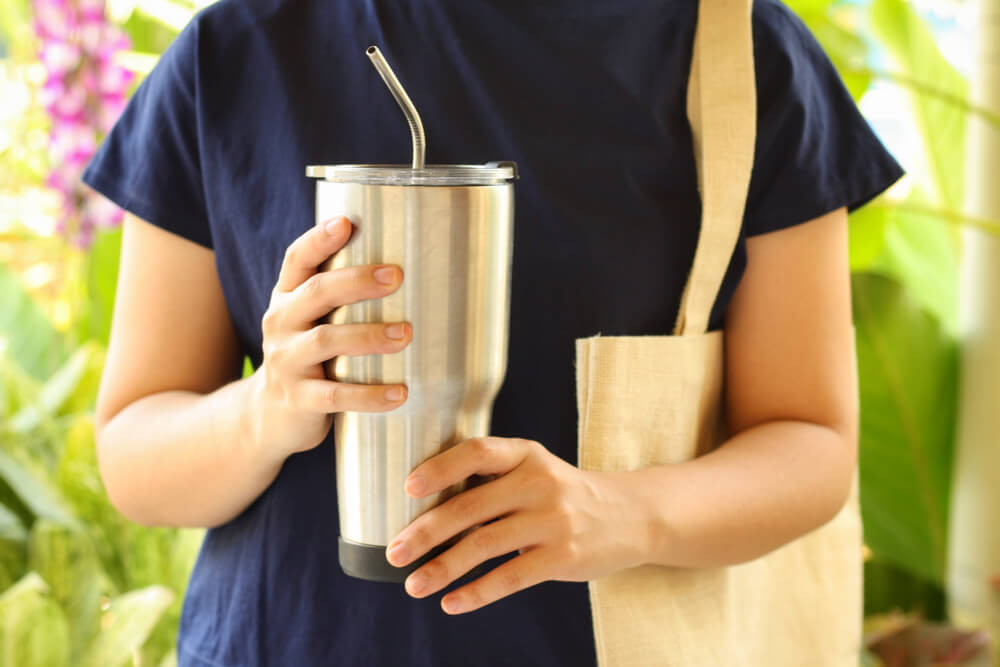
It is as simple as choosing to say no to a carrier when offered at your point of purchase. In fact, take it a step further by having your own reusable straws to enjoy your drink. People in Singapore use about 2.2 million straws daily [3] and a good first step we can all do is to say no to all straws offered.
8pm: An all-natural shower to end off your day
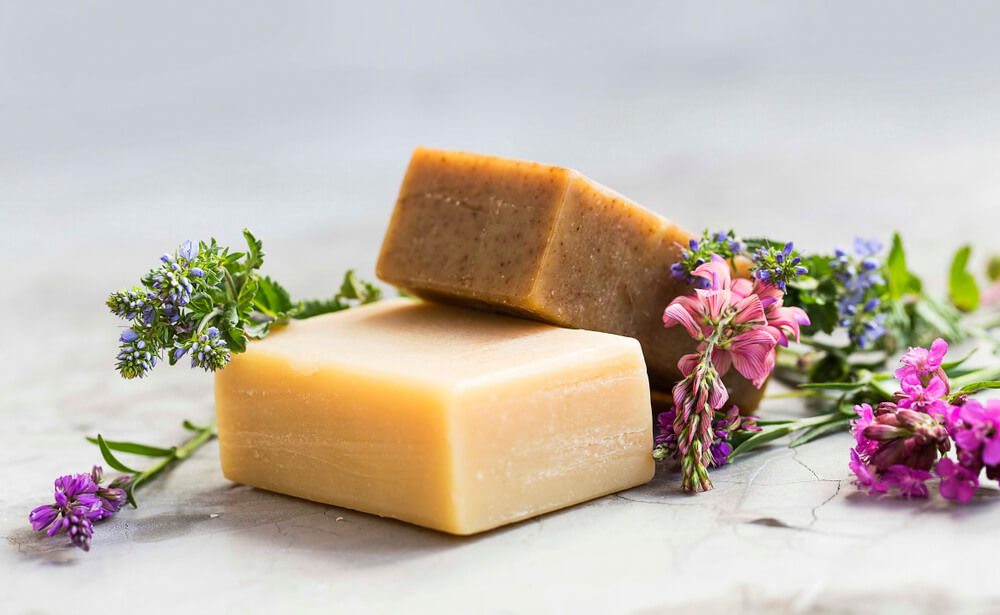
What better way to wind down at the end of the day than with a good shower at home. Why not replace plastic bottles of soap and shampoo with bar soaps in your own bathroom as part of your plastic-free experience? What’s more, there are specially made soaps in the market that can are meant just for your hair or even cater to various skin needs such as Eczema or Rosacea.
Plastic-free daily routine
Start out by switching one habit a day. It may seem challenging at first, but over time with consistent effort and practice, the plastic-free habit will become second nature. Our small actions to promote a plastic-free or plastic-less world can create big impact if we stick to them with conviction! Be a part of the #PlasticFreeJuly movement with Geneco and share with us on how you go plastic-free in your everyday routines. You can even get rewarded just for your plastic-free practices!

With the abundance of resources we have at our disposal, it is vital to not just initiate conversations at home, but also making use of them to educate our children about the various issues concerning our environment.
As we progress as a society, so does the importance of environmental conservation and the onus is not only on us to protect and conserve the environment, but to also inspire and equip the future generations to love and care for a greener and brighter tomorrow.
References:
- [1] Kashinsky, M. (2020, February 27) What are the benefits of using a bamboo toothbrush?
https://bamboodetective.com/what-are-the-benefits-of-using-a-bamboo-toothbrush/ - [2] Gonzalez, D. (2019, March 5). A Sustainable Alternative To Cotton Rounds That's Just As Easy To Use. Huff Post.
https://www.huffpost.com/entry/a-sustainable-alternative-to-cotton-pads-thats-just-as-easy-to-use_l_5ccb200ce4b0913d078e6a4d - [3] Mohan, M. (2019, June 8) Phasing out plastic straws helps the environment, but more needs to be done, say observers
https://www.channelnewsasia.com/news/singapore/phasing-out-plastic-straws-helps-the-environment-but-more-needs-11605108
Image Credits: Nylon Coffee Roasters
Source: The Sustainability Project
Debunking myths about plastic recycling in Singapore
- Home
- Residential
- Blog
- Archive by Category "Knowledge" (
- Page 8 )
[Post Date]
Debunking myths about plastic recycling in Singapore
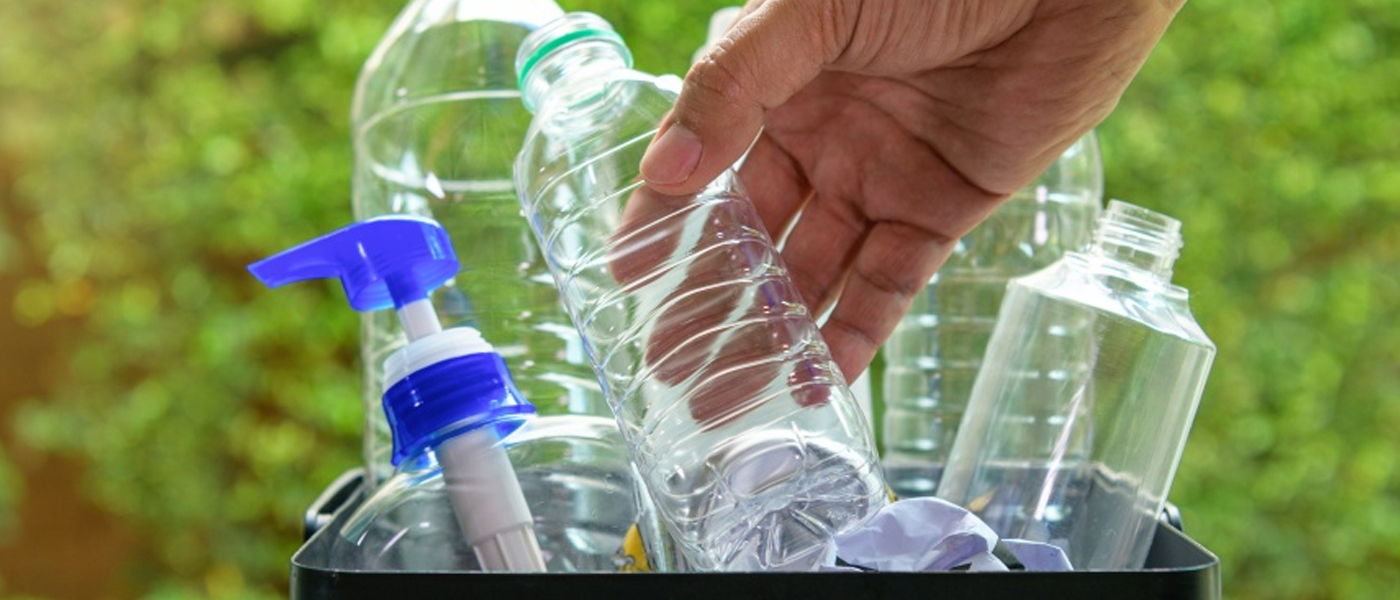
It is undeniable that plastic is one of mankind’s most used inventions. It is lightweight yet strong enough for a variety of applications. It has a low price point for production and can be easily manufactured for various needs across multiple industries. However, plastic waste is becoming a huge problem, especially since it takes a very long time – up to 1000 years, for it to decompose. No doubt a worrying sight, the use of plastic has continued to remain high even in Singapore. This was especially so during the recent circuit breaker where the nation saw an additional 1,334 tonnes of plastic waste generated.[1]
While the government has put in place many recycling initiatives and mapped out a master plan to achieve a zero waste Singapore, recycling rates still remain very low. In 2019, 930,000 tonnes of plastic waste were generated in Singapore, out of which only 4% of it is being recycled.[2] The excessive use of plastics and disproportionate recycling rates have impacted ocean health and biodiversity, further causing plastic pollution.
It is important to realise that our actions have cumulative and significant impacts on the environment, and we must do our part to manage our consumption and disposal of plastics. As we continue to push to cut down on single-plastic use and embark on a plastic-free life ourselves, here are some myth busters to break those misconceptions you may have about plastic recycling and to help you embark on your plastic-free journey!
Myth 1: Biodegradable plastic is good for the environment
Biodegradable = good for the Earth? You might want to re-think that.
According to experts in Singapore, choosing to use biodegradable plastic in Singapore does not make much of a difference as both single-use and biodegradable plastics end up in the incinerator.[3]
Biodegradable plastics make a difference to the environment only when they are buried in landfills where they degrade faster than regular plastic. Unfortunately, this is not the case for Singapore where waste is incinerated and not left in landfills to degrade.
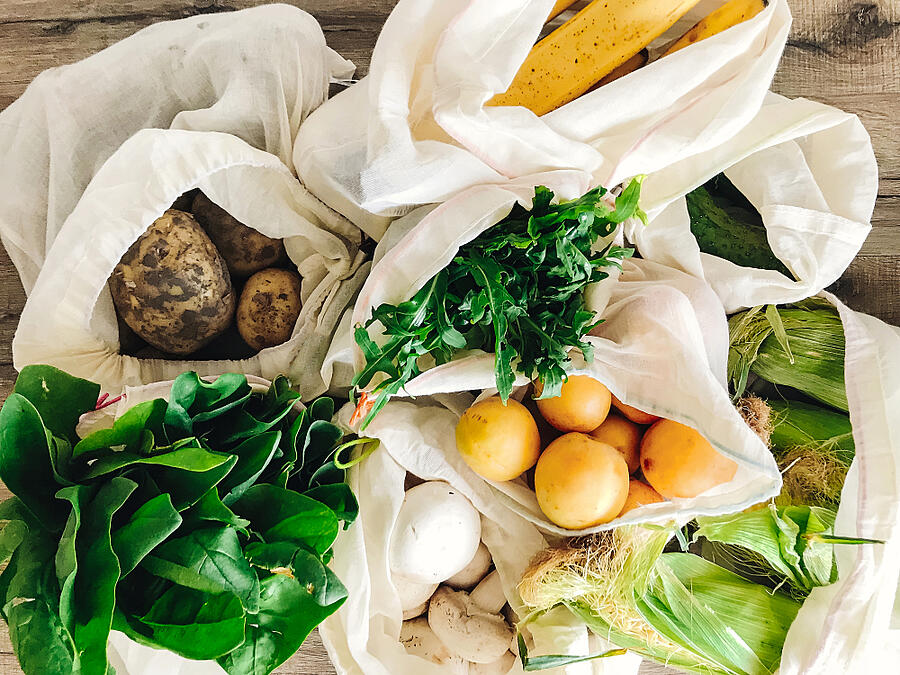
Tip: Before you think that it is alright to make that small exception and use that biodegradable bag, why not opt to carry a foldable eco-bag with you instead. When shoppers choose to use a reusable bag for a year, it is estimated that 125 single-use plastic bags are saved.[4]
Myth 2: All plastics in the recycling bin do get recycled
Contrary to what you believe, items that go into the blue recycling bins may not all eventually be recycled and this is especially the case for plastic.
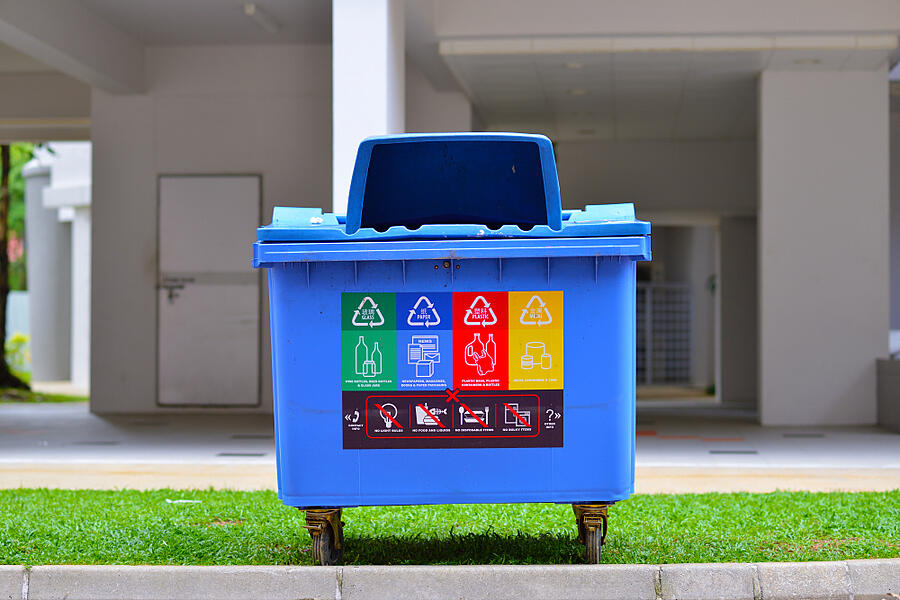
Unbeknownst to most of us, contaminated plastic cannot be recycled.[5] Even if you dispose your shampoo bottles or plastic food containers in the recycling bin with the good intention of having it to be recycled, if they have any form of residue, they are considered contaminated.
They must be thoroughly washed and dried for it to be recycled. This challenge is pertinent in Singapore, where more than 50% of plastic waste collected by companies cannot be recycled due to contamination.[6]
Tip: Remember to do a quick rinse and have them dried once you are done with your usage and consumption. It might seem troublesome at the start but making it a habit can go a long way for our Earth!
Myth 3: Most plastic get recycled and re-made into new products or useful items
Most Singaporeans may not know this, but majority of plastics can only be recycled once or twice before they are downcycled.[7] This means that plastics that have already been recycled once are no longer reusable.
In fact, shoes or any product made from recycled plastic cannot be recycled again and often end up in landfills or are incinerated both having detrimental effects to the Earth by contributing to the amount of greenhouse gas in the ozone layer. One way we can reduce it is by proactively reducing the use of single plastics, rather than just thinking it can always be recycled.
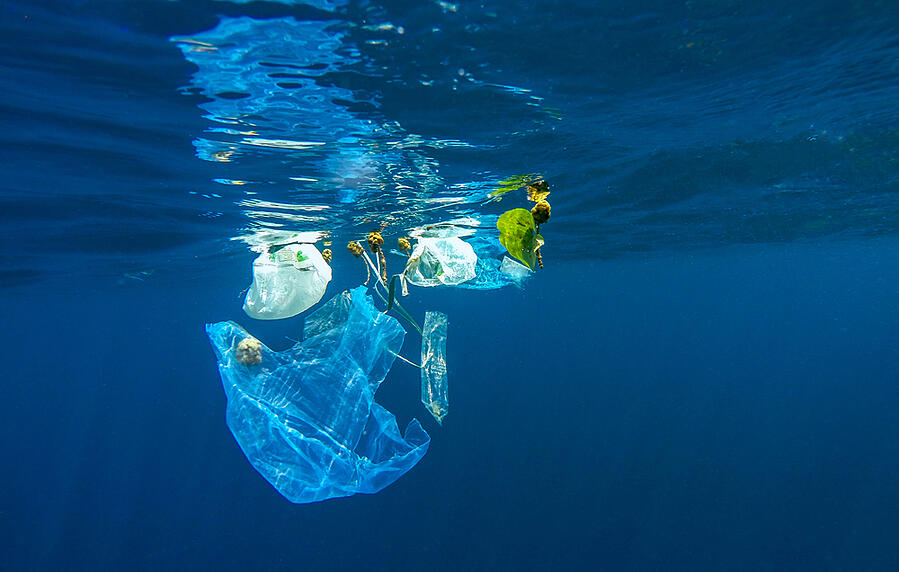
Tip: To get you started, some easy ways will be to opt for no cutlery for your food deliveries when you choose to order in meals for your family. Bringing your own food containers are options as well instead of using single-use plastic.
Myth 4: Coloured plastic can be recycled as well? Think again.
Yes, colour of plastic does make a difference in an item’s recyclability.
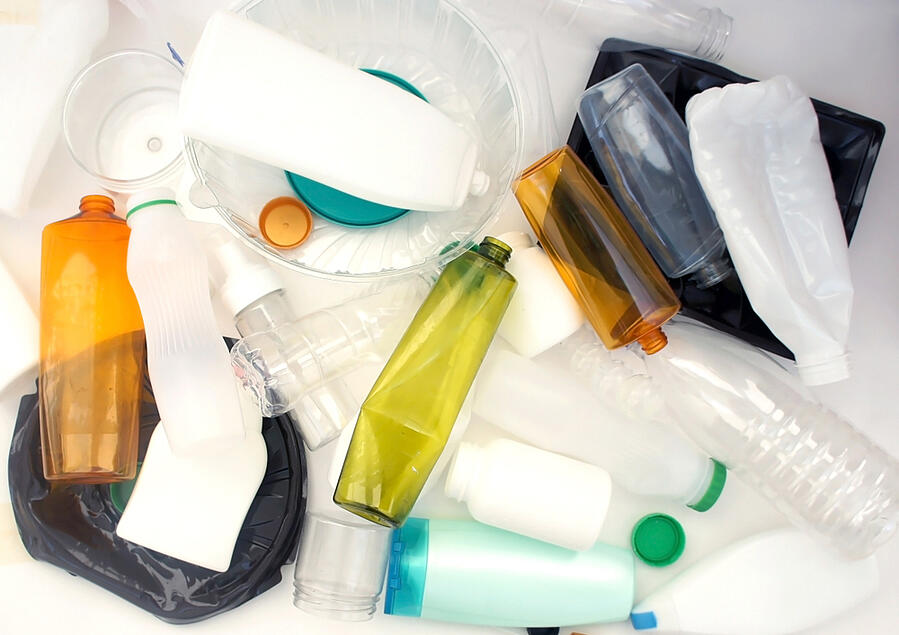
For black and coloured plastic, they usually have a lower market value as they cannot be dyed with flexibility after being recycled. Therefore, non-pigmented, clear, and transparent plastic are preferred over coloured, opaque plastics in the recycling process.[8] Furthermore, the latter is often not recycled as they cannot be easily identified by automatic sorting machines, leaving them undetected in the recycling pile and disposed at landfills.[9]
Tip: To curb this, consumers and producers can opt for non-coloured plastic in packaging. This will ensure that a larger share of what we put in recycling bins and centres do actually end up being recycled.
Towards a plastic-free future
In order for Singapore to cut down on plastic waste and use, it will require the united efforts of consumers, businesses and the Government. The main reasons for a low recycling rate can be attributed to the lack of public awareness on what can be recycled, and the challenges associated with the local recycling industry. Join Geneco as we stand to be part of Plastic Free July to reduce plastic pollution. Be part of our #PlasticFreeJuly movement here and share with us on your plastic-free practices and habits. After all, change begins at home and together our individual actions can lead to others among our friends and family to follow suit.
References:
- Elangovan, N. (2020, June 5) Singapore households generated additional 1,334 tonnes of plastic waste during circuit breaker: Study, Today Online.
https://www.todayonline.com/singapore/singapore-households-generated-additional-1334-tonnes-plastic-waste-during-circuit-breaker - [2] Waste Statistics and Overall Recycling. (n.d.). National Environment Agency.
https://www.nea.gov.sg/our-services/waste-management/waste-statistics-and-overall-recycling - [3] Ang, H. M. (2019, September 9). Biodegradable plastic alternatives not necessarily better for Singapore, say experts. CNA.
https://www.channelnewsasia.com/news/singapore/biodegradable-plastic-alternatives-not-necessarily-better-for-11854322 - [4] Kiew, J. (2019, July 3). Donation bins for reusable bags launched at supermarkets. The Straits Times.
https://www.straitstimes.com/singapore/donation-bins-for-reusable-bags-launched-at-supermarkets#:~:text=When%20shoppers%20use%20a%20reusable,by%20the%20National%20Environment%20Agency. - [5] 7 Things You Didn’t Know About Plastic (and Recycling). (2018, April 4). National Geographic Society Newsroom.
https://blog.nationalgeographic.org/2018/04/04/7-things-you-didnt-know-about-plastic-and-recycling/ - [6] Quah, J. (2018, September 25). How Singapore's plastic waste is recycled. Today Online.
https://www.todayonline.com/singapore/how-singapores-plastic-recycled-3 - [7] Howard, B. C. (2018, October 31). 5 recycling myths busted. National Geographic.
https://www.nationalgeographic.com/environment/2018/10/5-recycling-myths-busted-plastic/ - [8] Szaky, T. (2015, April 22). The Many Challenges of Plastic Recycling. Sustainable Brands.
https://sustainablebrands.com/read/waste-not/the-many-challenges-of-plastic-recycling - [9] George, S. (2018, August 2). Why can’t all plastic waste be recycled? The Conversation.
https://theconversation.com/why-cant-all-plastic-waste-be-recycled-100857
Image Credits: Nylon Coffee Roasters
Source: The Sustainability Project
Eco-friendly habits to keep as we enter a new lifestyle phase
- Home
- Residential
- Blog
- Archive by Category "Knowledge" (
- Page 8 )
[Post Date]
Eco-friendly habits to keep as we enter a new lifestyle phase
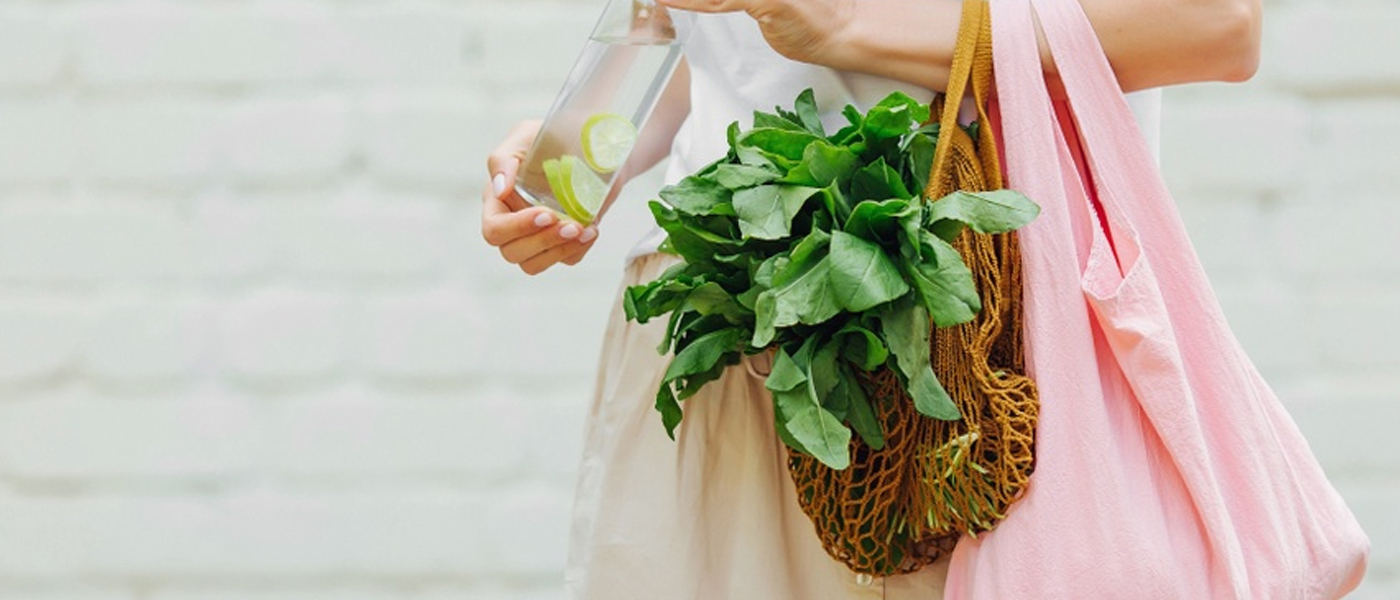
The world was a much different place a few months back when we were greeted with the news of having to stay in for the greater good. Navigating through those months were no doubt one of the biggest changes in lifestyle we have had to experience. As countries worldwide have started to ease lockdown restrictions, let us continue practicing the sustainable habits we have adopted in our day to day lives. Combating climate change is still very much a global challenge that everyone needs to play their part in:
1. Grow your own produce
It is little wonder that there has been more interest in home farming during this period as more people try their hand in growing their own microgreens, herbs, and edibles in their own homes.
The sprout of this hobby might have been no surprise with more people exploring new passion projects while staying in. Having a hand at tending to your own garden and harvesting your own produce have not only helped to promote sustainable eating, it has also shed light on the importance of food security in Singapore.
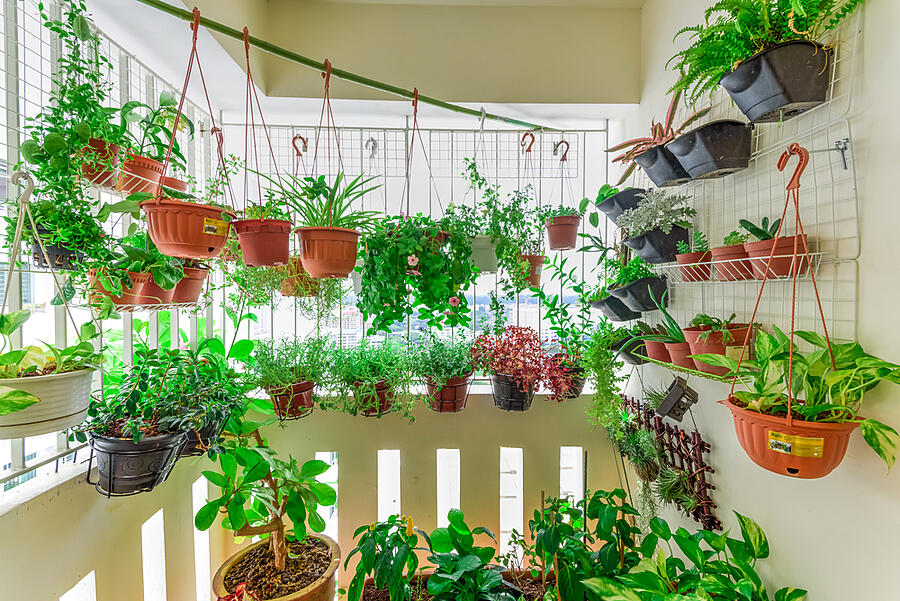
Many parents have even gotten their children on board by showing them how easy it is to have a hand in growing their own food using green beans or vegetable food scrapes. Others, who ignited their passion for the hobby, took their green fingers to the next level by growing their own vegetables such as bak choy and lady fingers within their homes.
The best part about joining this community of green enthusiasts? There are plenty of gardening groups and experts who are open and willing to share their tips and knowledge on how to start and manage your own home gardens! Cultivate Central, one of our ChangeMaker partners have been championing and supporting a grow-your-own culture since their inception. They have recently launched various content on their Instagram page on how anyone can start their own home gardens, even within small spaces.
2. Planning your meals
Food has certainly become one of the highlights to our days at home. Planning ahead for meals and when to slot in that sweet treat of the week might have become second nature to us all!
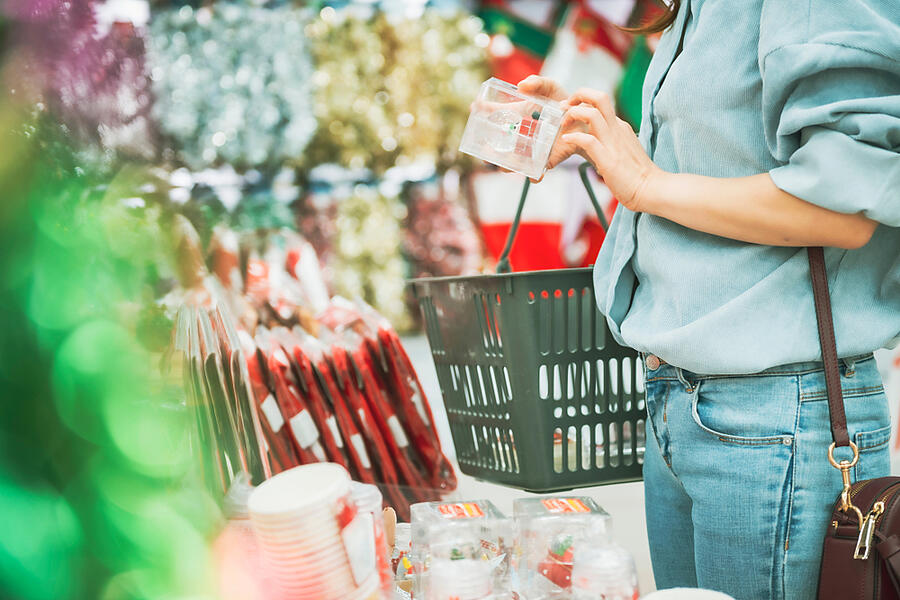
By planning your meals ahead of time, it helps you keep track of what you are eating and ensures a balanced diet is maintained. Also, having a list of ingredients needed for the week, helps to make sure we buy only what is necessary to prevent food wastage.
Other perks of planning your meals include being able to be creative at home and trying out new recipes that you probably have been putting off for a while. Among your friends and family, you might have discovered hidden gems who are actually master chefs in the kitchen.
3. Support Local
In a bid to help homegrown businesses to continue running and stay alive, its heart-warming to see Singaporeans start various initiatives and encourage everyone to play whatever part they can to show some love and help local businesses tide through. Some of the ways that Singaporeans have pitched in include buying gift vouchers or choosing to support local hawkers.
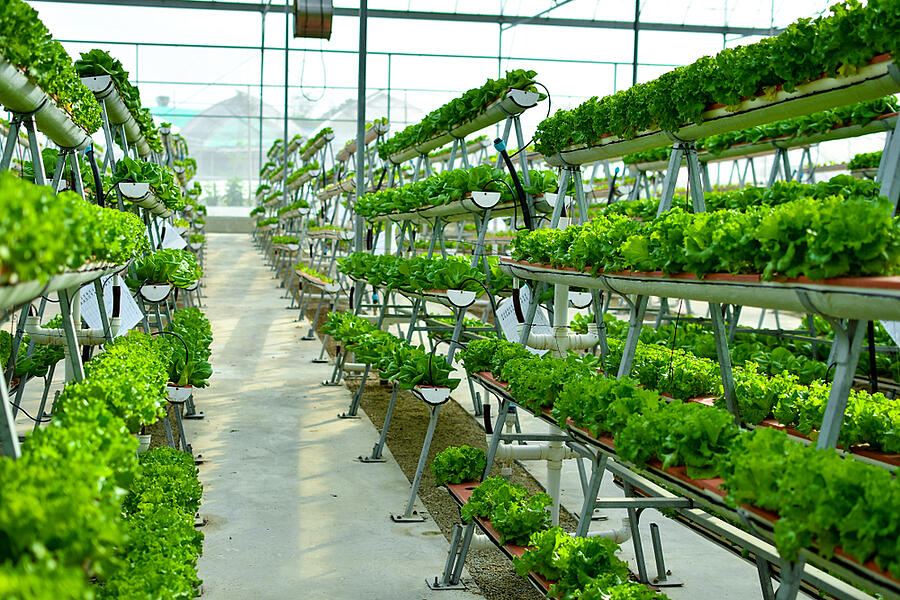
Many Singaporeans have also turned to buying local produce in their support for local farms. One of Geneco’s ChangeMaker ComCrop, makes use of unused rooftop spaces to grow their produce in the heart of Singapore to reduce carbon footprint for locals and complete the farm-to-table experience. Supporting farms like them not only ensures that they stay in business, but it continues to champion for Singapore’s steady flow of local produce to greater ensure the nation’s food security.
4. Bring your Own
With every takeaway and delivery, it is hard to ignore the amount of plastic that has piled up from the past couple of months. Singaporeans have however, been encouraged to bring their own clean containers when doing takeaways from their favourite food establishments and opting to turn down single-use cutlery when ordering through delivery apps.
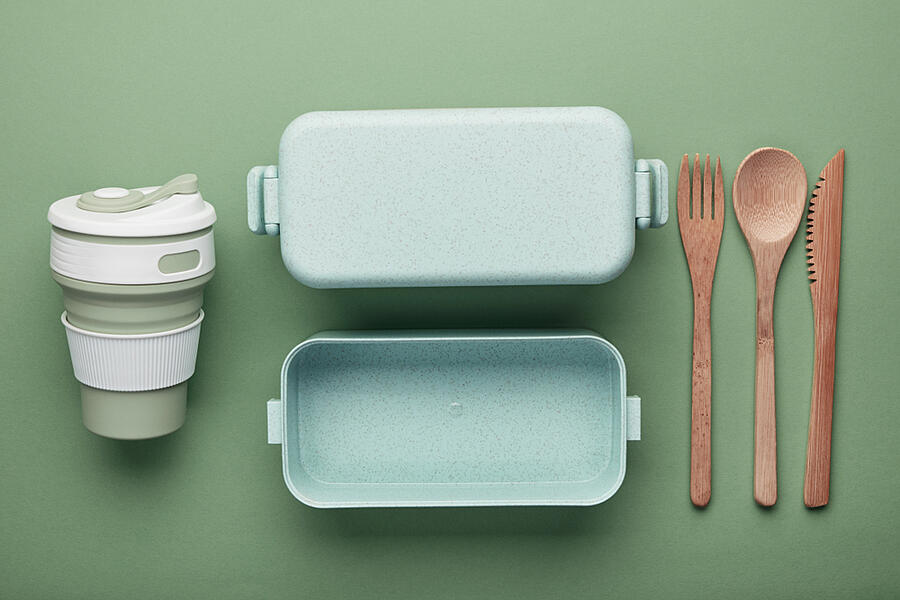
Last year, plastic waste alone accounted for 30% of Singapore’s three million tonnes of trash. As we continue to practice safe distancing and enjoy our favourite local delights from the comfort of our homes, we can continue to ingrain this habit of using our own containers to reduce pollution in the landfills.
5. Conserve Energy
Working from home has become the de facto norm so much so that it has extended the hours we spend on our desktop daily. Therefore, it is hardly surprising that you will see a shift in your energy consumption at home with an increased amount of time the lights and air-conditioned remain turned on. This also translates to higher electricity bills and a greater impact on the environment.
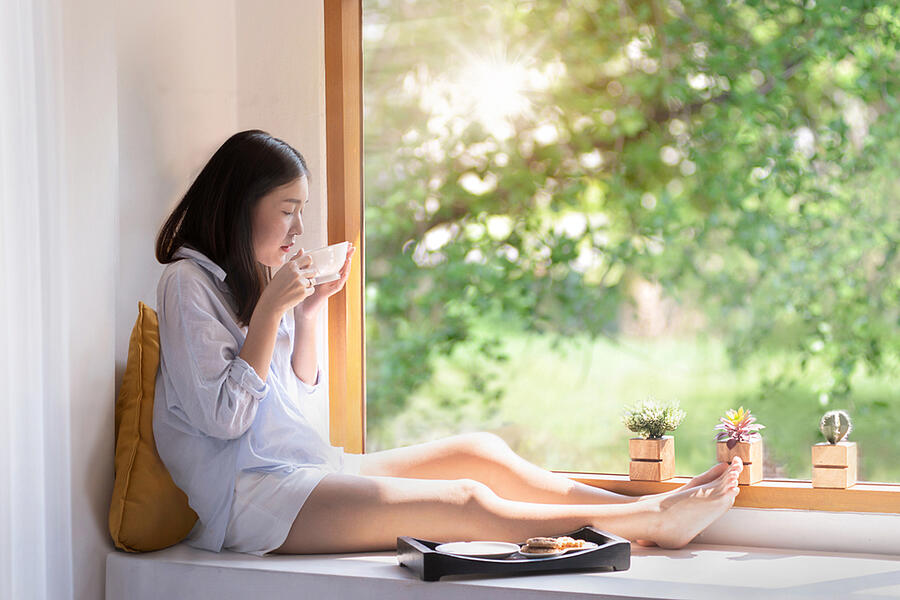
Therefore, be responsible in your electricity usage and conserve where you can save money. Inculcate positive habits to keep electricity bills low and continue to adopt them as we enter the “new normal”. Some easy habits that Singaporeans can continue to practice at home include using natural light whenever possible or unplugging electronic devices when not in use.
We have seen how by coming together, the world can affect real change. The fight against climate change might seem like a tall order at this junction, but everyone must know that individual actions do add up and contribute to saving the environment. A global community is what we have become so let’s not lose this opportunity as we strive to keep these habits in our daily lives and make a difference for the Earth and future generations.
References:
- Elangovan, N. (2020, June 5) Singapore households generated additional 1,334 tonnes of plastic waste during circuit breaker: Study, Today Online.
https://www.todayonline.com/singapore/singapore-households-generated-additional-1334-tonnes-plastic-waste-during-circuit-breaker
Image Credits: Nylon Coffee Roasters
Source: The Sustainability Project
Green energy for your home: How going green could be easier (and more affordable) than you think
- Home
- Residential
- Blog
- Archive by Category "Knowledge" (
- Page 8 )
[Post Date]
Green energy for your home: How going green could be easier (and more affordable) than you think
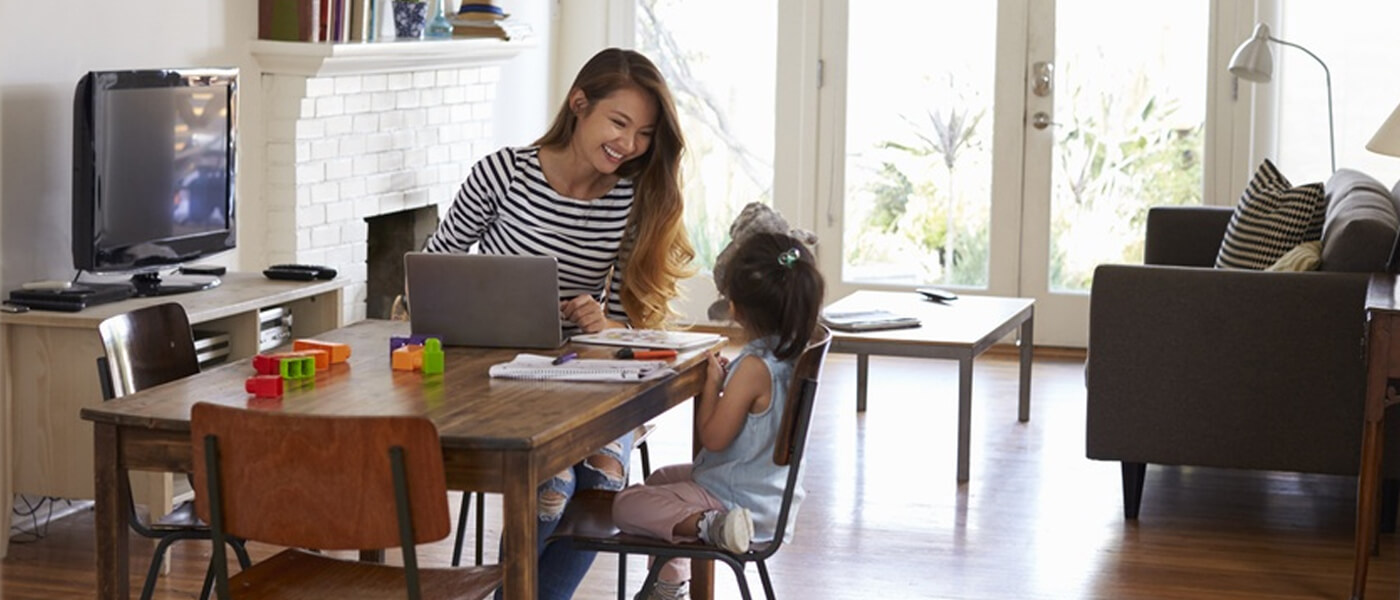
As working from home remains the norm for most of us, it is no surprise that more energy will be consumed over the next couple of months. With more frequent usage of our laptops and home appliances, we need to pay greater attention to our electricity consumption habits.
Easy changes we can make include, choosing the fan over the air-conditioner, or simply unplugging your electrical appliances whenever they are not in use. But more than that, Singaporeans should choose to go green with eco-friendly energy alternatives for your home.
Why choose green energy?
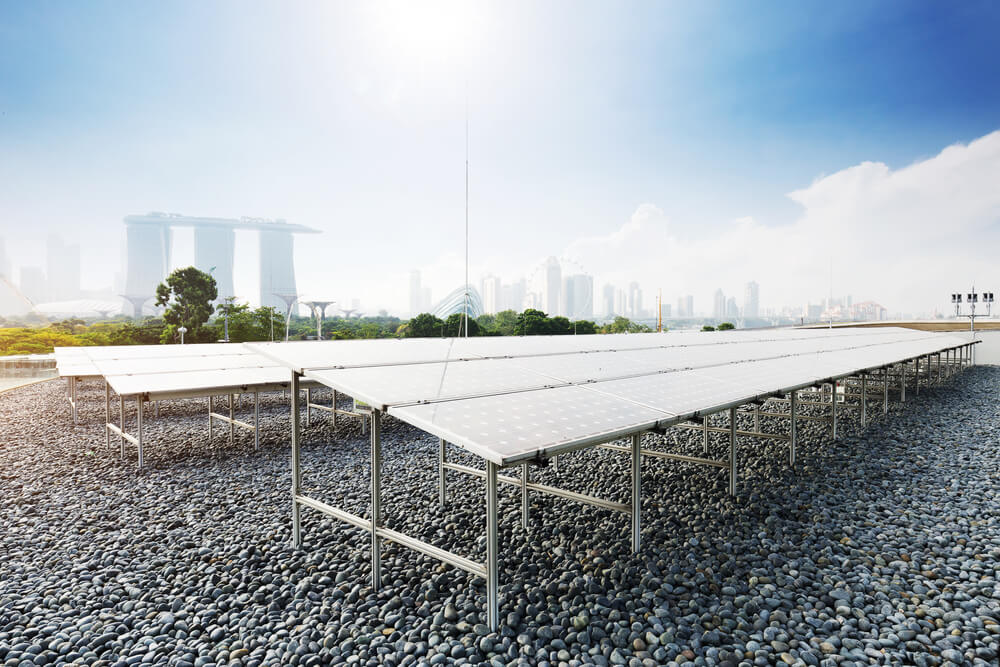
Green energy, also known as renewable energy, refers to energy derived from natural resources such as sunlight and wind. As these resources are potentially infinite, they can be used again and again.
Renewable energy also has a positive impact for future generations, unlike the conventional method of generating electricity by burning fossil fuels.
Fossil fuels such as coal, oil, and natural gas are resources that will diminish eventually with continued use. While it may not affect our generation now, these resources will undeniably and most definitely run out in the future
Moreover, the burning of fossil fuels emits greenhouse gases, which is the main culprit of global warming.
With a growing world population and a developing economy, more energy will be required. There need to be a collective effort in finding more sustainable ways of producing it and integrating it into our daily lives. Driving towards a low-carbon future with green energy remains a key priority for our future generations.
Going carbon neutral
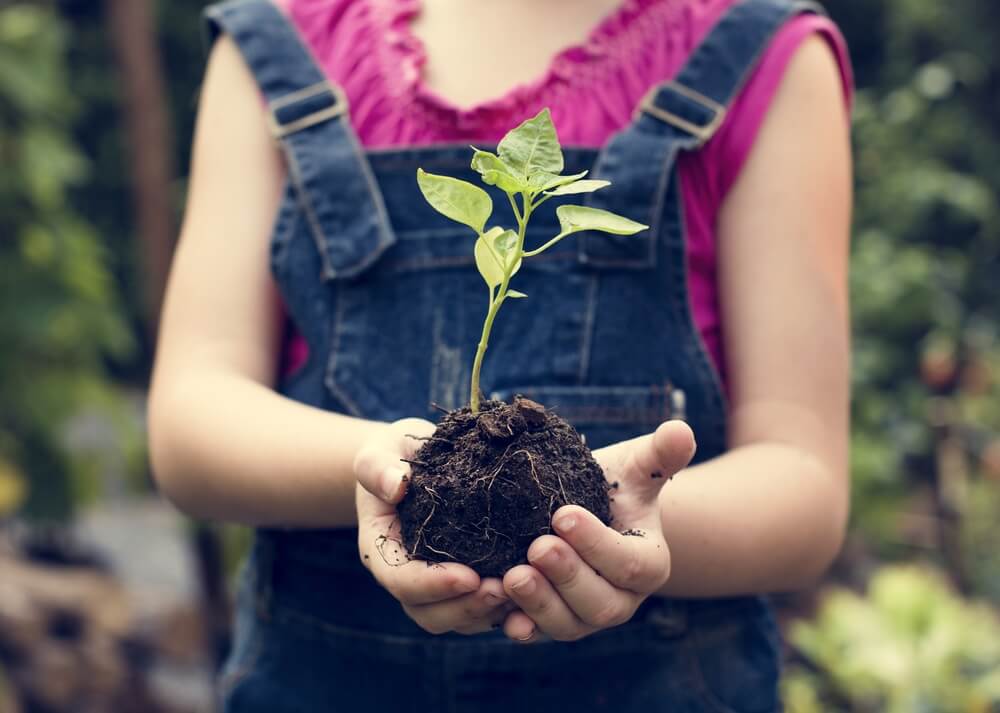
While a full transition to green energy would be the most ideal solution, most companies and organisations often face limitations in doing so for the corporate activities. How then can we play our part as individuals?
Enter Carbon Neutrality.
Going carbon neutral is a practical and affordable way for individuals to take responsibility for your carbon footprint. With the amount of greenhouse gases that were added to the atmosphere because of your consumption, it contributes to the overall carbon footprint generated by you.
By going carbon neutral, it allows you to offset the emissions released, and this can be done through the purchase of carbon credits. These credits will then be channelled to help fund projects that reduce carbon or greenhouse emissions. Examples of these projects include, updating power plants and factories, or increasing the energy efficiency of buildings and transportation.
Energy Savings, Cost Savings

Geneco is committed to power change for a more sustainable energy future. With our Get It Green plan, a 100% carbon-neutral electricity plan, you can go green with every kilowatt per hour of energy consumed.
With Geneco’s Super Saver campaign between June and July, enjoy the lowest rate of 17.45 cents per kWh and be an eco-warrior at no extra cost.
Choosing to power your home with green energy may seem like a small, insignificant change, but it is these small actions we choose to adopt in our daily lives that can collectively make a big difference for the future generations to come.
Do your part to reduce your carbon footprint and help power a more sustainable world.
For more information about Geneco’s “Get it Green” plan, visit the link here.
References:
- Elangovan, N. (2020, June 5) Singapore households generated additional 1,334 tonnes of plastic waste during circuit breaker: Study, Today Online.
https://www.todayonline.com/singapore/singapore-households-generated-additional-1334-tonnes-plastic-waste-during-circuit-breaker
Image Credits: Nylon Coffee Roasters
Source: The Sustainability Project
Celebrate International Day of Families and remember to spend quality time with your loved ones
- Home
- Residential
- Blog
- Archive by Category "Knowledge" (
- Page 8 )
[Post Date]
Celebrate International Day of Families and remember to spend quality time with your loved ones

Each year on May 15, we celebrate International Day of Families by appreciating the importance of families around the world. This year, a different set of circumstances has presented abrupt changes in our day-to-day routines for many of us, as we observe safe-distancing measures.
However, this also provides a great opportunity for family bonding as we spend more time with each other. In between juggling the “new-norm” of working from home with new household demands, we may in fact be spending less quality time with our families than we expect.
Therefore, let’s make this a special day by creating conscious efforts to continuously support and care for each other. Here are four tips to help you keep family a priority:
Regular morning check-ins
It isn’t always easy for parents to work from home. Children may require plenty of attention from their parents during working hours. Some may even feel neglected due to the lack of attention despite their parents being home all the time.
Therefore, try to explain the situation with your children. Start the day by having a chat with them to explain your work schedule. This way, you can continue your day with the assurance that your child understands the time limitations imposed upon you by work commitments.
To complement this, draw up a structured timetable for the kids to follow. Should they need your help with schoolwork along the way, set aside some time within both your schedules to address them. Letting them understand your work schedule whilst demarcating your out-of-bound hours should help set the boundaries for you to get work done as well.
You can even make your own timetable at home this weekend simply by reusing materials around the house and embark on a green craft as a family.
Set reminders for important dates

It’s easy to lose track of dates and forget important occasions such as anniversaries and birthdays when you have been staying indoors for an extended period. Set reminders on your calendars, bookmark these special days and make plans to show your loved ones the care and concern they deserve. After all, nobody enjoys being forgotten and neglected, especially during this stay-home season.
To celebrate these occasions at home, consider holding an indoor themed party for the family or whip up their favourite dishes as part of their birthday meal!
For extended relatives and family members you may live apart from, surprise them with their favourite meals using food deliveries for a simple yet effective way to show them how important they are to you. Just remember to be sustainable by picking the “no plastic cutleries” option whilst ordering!
No work on the dinner table

As your workload increases, you may find yourself too busy to enjoy mealtimes with the family. Consider taking a step back to savour and focus on these moments that most of us tend to take for granted. As such, set aside a little time to connect with each other will no doubt go a long way to strengthen ties between family members.
You can plan for special dinners over the weekend, and get the whole family involved in the meal preparations. Add a finishing touch to your dishes with homegrown herbs, such as basil or mint, from your very own food scrap garden, making the meal extra meaningful and delicious!
Try something new together
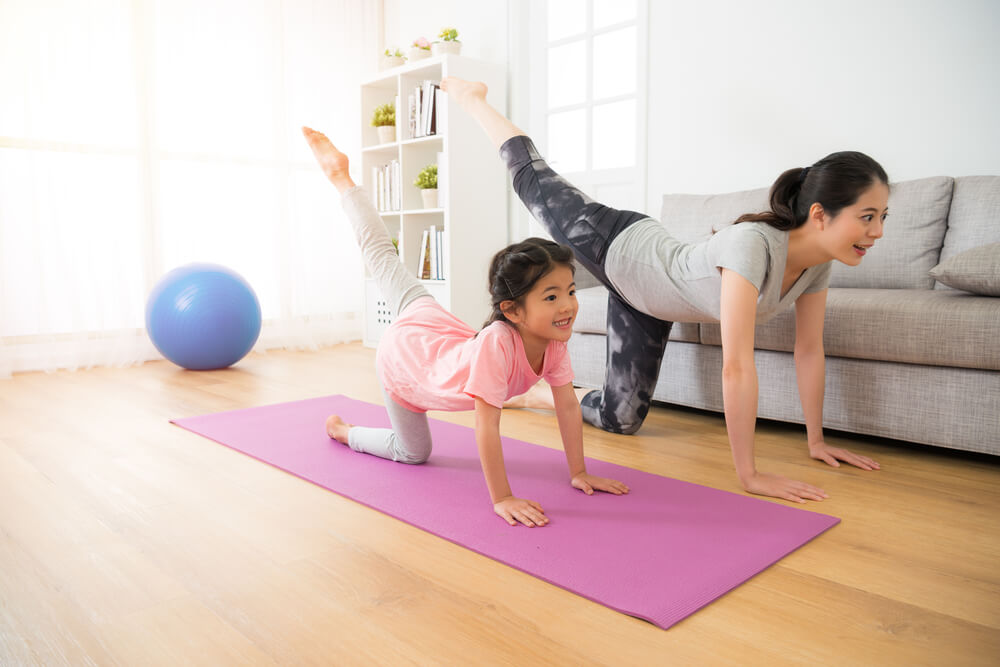
Staying at home also makes for an excellent opportunity for families to attempt new activities together, such as trying new workouts that you previously didn’t have time for. Not only will this help you stay active and fit, you’ll get to spend quality time with your nearest and dearest. From yoga and pilates to intense cardio sessions, there is an abundance of workouts online for families to choose from.
If fitness isn’t your thing, consider other activities such as watching a movie you have been putting off or picking up new creative skills like painting as a family. You can upcycle items around the house and work on a green craft to keep the kids entertained. Activities that you can embark on include crafting your own indoor playground or making building your own grocery store using cardboard boxes. Such shared experiences create opportunities for bonding, while offering an element of fun to life during this stay home period.
We understand navigating new routines and working around changes during such times may not be the easiest, but we believe this period also offers valuable lessons and reminders of what’s important in life. After all, families are the most basic unit of society. Cherishing every moment with yours should be a priority, especially in times of uncertainty when you’ll need each other to weather the storm.
From our families to yours, Happy International Day of Families!
References:
- Elangovan, N. (2020, June 5) Singapore households generated additional 1,334 tonnes of plastic waste during circuit breaker: Study, Today Online.
https://www.todayonline.com/singapore/singapore-households-generated-additional-1334-tonnes-plastic-waste-during-circuit-breaker
Image Credits: Nylon Coffee Roasters
Source: The Sustainability Project
3 ways to inspire change while you #stayhomewithgeneco
- Home
- Residential
- Blog
- Archive by Category "Knowledge" (
- Page 8 )
[Post Date]
3 ways to inspire change while you #stayhomewithgeneco

How many of us have brought up the topic of climate change with family or friends?
Let’s be honest. Talking about climate change is not exactly table-talk. With COVID-19 now being the center of discussion, while at the same time restricting how we are able to interact with each other, it is difficult to kickstart a conversation on the topic.
However, big change can be ignited with small talk—and the current situation provides us with ample opportunities. As we #stayhome and bond as a family during this Circuit Breaker period, we can also play an active role in raising awareness about climate change.
In fact, this can be one of the best things you can do for the planet today. Whether it’s at the dining table with your immediate family, or over video catchups with friends, we all can seize this opportunity to discuss this critical subject. But how can we best bring up, and have meaningful conversations about climate change?
Here are three of our top tips on how you can help people feel more engaged, informed, and willing to do something for our earth:
Understand what matters to them
Learning how people engage with the world and understand their place in it can help in positioning the issue of climate change in a way that will resonate with them.
This provides us opportunities to draw links between COVID-19 and climate change. The current COVID-19 situation is a global concern, and has impacted every one’s way of life significantly. Much akin to climate change, the adverse effects will affect future generations, if the right actions are not taken. Both issues require individuals and organisations to work together to overcome a challenge—just like how social distancing requires everyone to do their part to reduce the spread of the virus, each of us can also do our small part to contribute to a greener future.
In the same vein, being able to connect with each other over common interests will make it easier for both parties to listen and understand one another. For instance, engaging friends who are parents on how they would like to shape the future for their children can send across a powerful message to them. Relating the topic of climate change and the impact of their action can inspire change.
Finding out what matters to your audience can be key in shifting them from passive observers to engaged participants.
Be open and listen actively

While it is useful to share your personal ethos towards a sustainable lifestyle, we should also remember to be open to the thoughts and suggestions of the other party. Guiding the discussion and leaving it open helps draw out everyone’s thoughts and feelings about the subject. This can be difficult as climate conversations can sometimes turn into the battle of opinions and facts.
As such, we should be open to different opinions, and learn to simply enjoy the conversation. This means that instead of being an activist, we need to listen to win! Listening is one of those underrated skills that we should probably all be bringing to conversations on big topics like climate change.
Conversations are not battles to be won and lost, but a first step to share your thoughts and beliefs when engaging about climate change.
Share your experience
People are not naturally motivated by statistics, such as figures from the latest news article on the amount of carbon emissions. We are motivated by relevant and relatable stories that demonstrate the whys and hows in the choice to fight climate change.
So, the next time you jump on a video call with your friends or family, share with them on how you embarked on your own personal journey in choosing a sustainable lifestyle and how you continue with it while staying in. This might resonate more with them than you would expect since we are all at home. It can be an example of how you’re doing your part during this circuit breaker period—like teaching your children how to make green crafts with recycled materials around the house, or bringing your own containers even more so during this period when doing takeaways to save on single-use plastics.
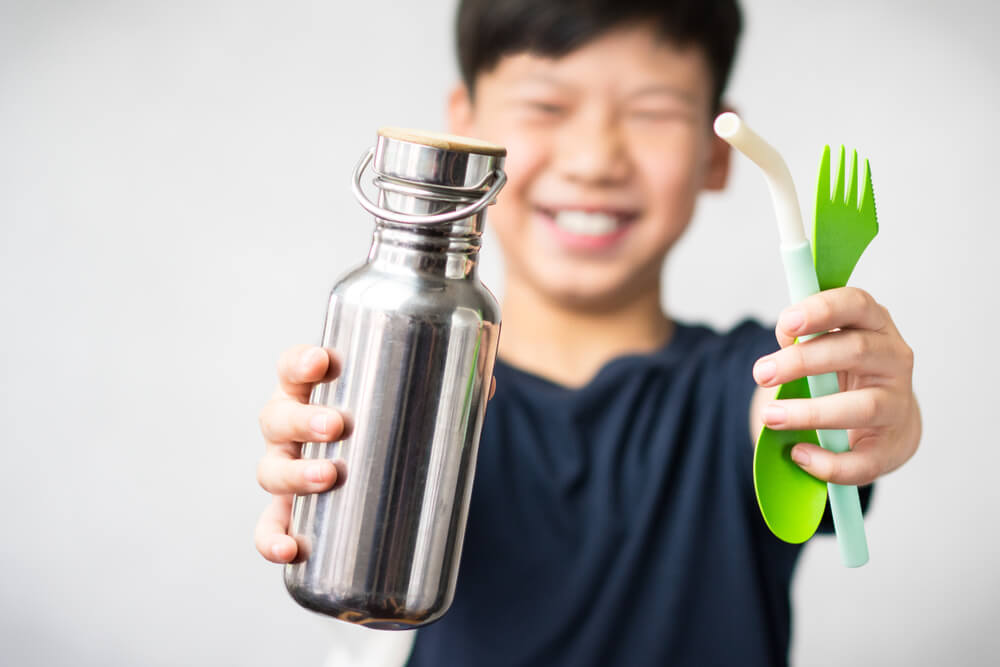
From there, the topic can expand into causes that you believe in—such as easy ways to compost, or choosing local produce—and it is simple for anyone to do their part in the fight against climate change.
Sharing a personal experience as to why you have kick start your own journey to sustainability may just be the push that they need to start their own.
Together, we can make a difference
Committing to having a conversation on climate change with someone in your social circle can be a simple and powerful tool to make a difference. As individuals, we might only have a little influence over macro policies, but productive conversations are a first step in building a community and moving towards action.
We have shown that we can work together as a global community to act for a cause. While we continue to stay home and play our part in combatting COVID-19, we can also look at this as an opportunity to raise awareness for a greater cause. After all, when we work together, small personal actions can turn into big differences.
Here’s a way to get the ball rolling on the topic of climate change: tell your friends and family members about Geneco’s #stayhomewithgeneco challenge and the chance to win $100 worth of Dairy Farm vouchers! All they have to do is complete a green craft as a family and share it on Instagram. Not only do they cultivate a green habit, they can get rewarded for it too!
Competition ends on Thursday, 7 May, and more details can be found on our Instagram page.
References:
- Elangovan, N. (2020, June 5) Singapore households generated additional 1,334 tonnes of plastic waste during circuit breaker: Study, Today Online.
https://www.todayonline.com/singapore/singapore-households-generated-additional-1334-tonnes-plastic-waste-during-circuit-breaker
Image Credits: Nylon Coffee Roasters
Source: The Sustainability Project
